Senior Section

A LETTER FROM THE CLASS MARSHALS
Fez S. Zafar ’24 and Chibuikem C. “Chuby” Uche ’24, First and Second Marshals for the Class of 2024, reflect on college.
CLASS OF 2024 SENIOR SURVEY
The Crimson’s senior survey provides data on the Class of 2024’s postgraduate plans, political attitudes, and social lives.
WEDDING BELLS
Read the stories of the seniors in the Class of 2024 who are celebrating another life landmark: tying the knot.
PAGE 26 PAGE
5 PAGE 4
D MAY 23, 2024 The Harvard Crimson COMMENCEMENT 2024
Foreword Table of Contents Senior Section Staff
College is always time of tumult and transformation. The Class of 2024, of which many of us are members, has lived that chaos — and then some. From the Covid-19 pandemic to historic campus protests, as Crimson editors we have witnessed and documented Harvard’s evolution.
In this Senior Section, we surveyed our peers on their undergraduate experience, political views, and post-Harvard plans to see a snapshot of our class at this pivotal moment in our lives and in Harvard’s history. Our class marshals write parting words, and we share the stories of our peers who have tied the knot (or will soon). As we leave The Crimson behind, we are delighted to share this capstone of our editor and undergraduate experiences with you.
4
5–23
6
Cara J. Chang ‘24
Brandon L. Kingdollar ‘24
Meimei Xu ’24
Leah J. Teichholtz ’24
Editors
Io Y. Gilman ’25
Sarah Girma ’24
Ariel H. Kim ’24
Amber H. Levis ’25
A Letter From the 2024 Class Marshals
Fez S. Zafar ’24 and Chibuikem C. “Chuby” Uche ’24, First and Second Marshals for the Class of 2024, reflect on college and thank their classmates.
Senior Survey
We share the results of the Class of 2024 survey, ranging from statistics on dating to views on the recent encampment in Harvard Yard.
Academics & Student Life
Check out the academic and social interests of the class, from GPAs to House satisfaction.
8 Timeline
Here are the top 12 events that shaped the Class of 2024’s college careers.
9
Lifestyle
Sex, Dating Apps, Drugs: Read about how students spent their free time at Harvard.
24
26
4 Years in Photos
11
20
23
Campus Politics
Seniors grade Harvard on the issues and offer approval ratings of top administrators.
National Politics
Seniors report their political leanings and offer their views on the upcoming election.
After Harvard
Learn about what the class is doing post-graduation and where they’ll be living.
From the archives: See the Class of 2024’s time on campus laid out visually.
Wedding Bells
Hear from six couples in the Class of 2024 who are married or engaged to be married soon.
Vivi E. Lu ’24
Eleanor V. Wikstrom ’24
Eric Yan ’24
Vivian Zhao ’24
THE HARVARD CRIMSON COMMENCEMENT 2024
Cover Photo Design
Web Design
Julian J. Giordano ’25 Isabel W. Brown ’24
Toby R. Ma ’24
Kevin Luo ’24
Justin Y. Ye ’24
2 PAGE DESIGN BY ISABEL W. BROWN — CRIMSON DESIGNER

A Letter from the Class Marshals
Fez S. Zafar ’24 and Chibuikem C. “Chuby” Uche ’24
To the Class of 2024,
In November, as the Senior Class Committee gathered for one of its initial meetings, we had an essential task before us: authoring a mission statement for the months ahead.
As we reviewed statements by seniors from years past, we encountered messages that emphasized belonging, reflection, diversity, and connection. These are values universal to every generation of Harvard students, but how could we author a statement that would tell the unique story of the Class of 2024?
How could we articulate the pain of a remote freshman year, one that was engulfed by mask mandates, wellness days, and — for some of us — classes on Zoom at three o’clock in the morning?
How could we explain the euphoria of discovering a fully-populated campus for the first time as sophomores, when we finally met blockmates in person and witnessed the unexpected collapse of a decades-old student government?
How could we describe the political tension of a junior year in which the University advocated for — and subsequently lost — the right to implement race-conscious admissions?
And, as we began our senior year, how could we make sense of what was to come for Harvard: unprecedented controversy, a presidential resignation, and campus turmoil unlike any the University had seen in decades?
With these questions in mind, we were keen to form a mission statement that would summarize not only our roller coaster of a college experience — which is itself an understatement — but also the final year we were resolutely determined to have. We did so in just four simple words:
”It’s gonna be electric.”
And what an electric senior year it was.
We inflated the social bubble of campus, and threw massive parties that drew every genre of Harvard student to some of Boston’s finest venues.
We transformed the Malkin Gymnasium into a laser tag arena, and battled it out

with friends as music played in the darkness.
We donned the dresses and tuxedos we never wore in high school, and recreated the Senior Prom we never had.
We played the biggest game of Senior Assassins in the history of Harvard, and watched almost 900 participants chase one another with spoons across campus wearing goggles and two hats.
Even amid all the fun, we powerfully met the moment. As campuses across the country were rocked by discord, we hosted a large community dinner for students of different backgrounds. Harvard’s Muslim and Jewish chaplains delivered meaningful remarks, and attendees marveled at performers of Bhangra and Latin dance. That evening, it was clear that our campus unity remained vibrant and strong.
In short, the Class of 2024 will depart from Cambridge having created an enduring and unforgettable impact on the culture, social life, and trajectory of the University. As the first class to enter the Yard under siege from Covid-19, we have defined Harvard in the post-pandemic era. We have left behind old traditions, started new ones, and charted a course that has left our campus — our home — more inclusive, curious, united, and fun.
Today, a journey that began in GroupMe chats, Google Drive folders, and Zoom calls will now end as it should: with the traditional pomp and circumstance of an in-person Commencement ceremony.
Today, we have much to celebrate, and even more to be grateful for: the family members, teachers, and friends who have collectively lifted us to the graduation stage.
Today, we will leave Harvard as newly minted alumni. Tomorrow, we will return as leaders, dreamers, innovators, and contributors toward a better future for us all.
We will always be here for you and look forward to cheering you on every step of the way. Until then, this is not a goodbye, but a see you soon.
With love, gratitude, and congratulations, Fez and Chuby
Fez S. Zafar ’24, a Government concentrator in Dunster House, is the Class of 2024’s first marshal.
Chibuikem C. “Chuby” Uche ’24, a Government concentrator in Currier House, is the Class of 2024’s second marshal.
THE HARVARD CRIMSON COMMENCEMENT 2024
4
JOEY HUANG — CRIMSON PHOTOGRAPHER
Class of 2024
Senior Survey
As graduating seniors look back on Harvard, perhaps only one thing is certain: The Class of 2024’s college careers have been shaped by crisis after crisis.
From the Covid-19 pandemic overtaking our freshman year to the fall of affirmative action in the summer after our junior year to the resignation of Claudine Gay and campus protests sweeping the nation our senior spring, we have had a more tumultuous college experience than most would want. Once we walk out of Dexter Gate, we will enter an even more tumultuous world, wracked by elections and wars.
The Class of 2024 is set to gather in Harvard Yard for their Commencement where just a week before, student activists camped in tents to demand the University divest from Israel. The Harvard Crimson’s annual senior survey shows a class sharply divided over the pro-Palestine protests that have rocked campus since Hamas’ October 7 attack on Israel.
Half of surveyed seniors said they disapproved of the encampment, while a little over a third voiced support for it. Similarly, 48 percent of respondents opposed a student government referendum that would demand the University divest from institutions supporting “Israel’s occupation of Palestine,” while 34 percent were in favor. A plurality of 48 percent said they oppose U.S. aid to Israel amid the war in Gaza.
This survey of the senior class also reflected broader polling revealing difficulties ahead for President Joe Biden with young voters in his reelection bid. Roughly 39 percent of the graduating class reported an unfavorable opinion of Biden, compared to 49 percent who favor him. Still, 62 percent indicated that they plan to vote for Biden in 2024, while 6 percent indicated support for Trump and 13 percent said they would vote third-party.
The Class of 2024 will likely be best remembered, though, as the freshmen who began their college careers at the height of the pandemic, attending their very first classes on Zoom rather than in Harvard’s historic lecture halls. It was an isolating
way to begin our undergraduate years — on average, respondents reported having just four close friends at Harvard in fall 2020. Far from the traditional first year in the Yard, more than a quarter of surveyed seniors said they were never on campus while classes were remote.
But after four years, the Class of 2024 is finally getting an in-person graduation — a Yard packed with smiling seniors and their families that would have been unthinkable our freshman year. Despite all that seniors have weathered, 93 percent of respondents would choose Harvard again.
Methodology
The Crimson distributed the survey by email to 2,026 graduating seniors and members of the social Class of 2024 through emails sourced in summer 2020 and May 2024 from Harvard directory information. Participants accessed the survey form via anonymous, individualized links from May 1 until May 13, 2024, when the survey closed. During that period, The Crimson collected 1,209 surveys, representing a response rate of 59.7 percent of those who received the survey.
The data includes academic and social seniors. Eighteen percent indicated they matriculated earlier than 2020, meaning they took leaves of absence from Harvard and later re-classed as members of the Class of 2024. Meanwhile, 4 percent indicated that they will graduate in December of 2024 or later, meaning they affiliate as “Social Seniors” but will not graduate with the majority of their class this May. Overall, 21 percent took time off from Harvard.
To check for potential response bias, The Crimson compared respondent demographics with publicly available information on student demographics provided by the University — information regarding gender, race, and ethnicity. Overall, the respondents to the survey were in line with the demographics of the broader student body. The data was not otherwise adjusted for response biases
THE HARVARD CRIMSON COMMENCEMENT 2024
5 PAGE DESIGN BY TOBY R. MA — CRIMSON DESIGNER
Academics & Student Life
By ARIEL H. KIM AND VIVIAN ZHAO CRIMSON STAFF WRITERS
The Class of 2024 entered Harvard during the pandemic and exited as generative artificial intelligence and the elimination of shopping week marked a shift in the educational experience at Harvard.
The College invited the Class of 2024 to spend their first semester at Harvard in person — albeit with online classes — but not again that spring semester. Only in fall 2021 did the whole class begin an in-person academic and social experience at Harvard.
Since returning to campus, the Class of 2024 has witnessed a series of changes at the College. In May 2022, the Faculty of Arts and Sciences, Harvard’s largest academic school, voted to end shopping week and shift to a previous-term course registration model. This change began with spring 2024 courses, so seniors registered for their final courses at Harvard months before they had done so in previous years.
The Class of 2024 has also witnessed the rise of ChatGPT and other AI chatbots. Harvard’s classrooms have evolved in real-time to adapt to the widespread impact of generative artificial intelligence tools, most notably ChatGPT, an AI chatbot that can generate text in natural language and code.
In July, Harvard issued University-wide AI guidelines emphasizing the protection of confidential data. The FAS quickly followed suit, releasing guidance for professors to help them establish their own rules regarding generative AI in their courses.
Covid-19
Many members of the Class of 2024 began their college careers during the Covid-19 pandemic, with some spending the entirety of their freshman year learning remotely and coming to campus for the first time their sophomore fall.
A majority of respondents report-
ed living in Harvard’s dorms when classes were remote during the pandemic, with 72 percent reporting living on campus in fall 2020 and 16 percent in spring 2021. Around a quarter of respondents said they did not live in Harvard’s dorms when classes were remote during the pandemic, compared to 79 percent of respondents from the Class of 2023.
Surveyed seniors were split as to how remote learning during the pandemic affected the difficulty of their coursework: 43 percent of respondents said remote learning made their coursework less or much less difficult, while 40 percent said their coursework became more or much more difficult during the pandemic.
Nearly all respondents — over 99 percent — said they were partially or fully vaccinated for Covid-19, with 85 percent indicating they were fully vaccinated and received multiple boosters.
Although nearly all members of the Class of 2024 were vaccinated, three-quarters of respondents reported contracting Covid-19 at least once, a small drop from roughly 80 percent of last year’s survey respondents. More than half of those students — 54 percent — reported they had contracted Covid-19 more than once. More than 57 percent of those students also said they believed their exposure to the virus had taken place on campus.
Nearly 43 percent of respondents who contracted Covid-19 reported testing positive in spring 2022, when Harvard loosened many of its Covid-19 restrictions.
Just over 7 percent of respondents reported that their family members or personal contacts died from the coronavirus.
Concentrations
The proportion of seniors opting to pursue a double concentration more than doubled since it was first introduced last year: under 4 percent of respondents last year graduated with a double concentration, while over 9 percent of respondents this year will. The
percentage of respondents pursuing a joint concentration, which requires a cross-disciplinary senior thesis, stayed the same from last year to this year at 13 percent.
The top five concentrations among respondents, in decreasing order, were Economics, Computer Science, Government, Applied Mathematics, and Neuroscience — the same as last year, except that Computer Science switched places with Government this year. Just under half of respondents reported feeling that their concentration classes were somewhat or very difficult, compared to 28 percent reporting their concentration classes were somewhat or very easy.
Academics was a top priority for a vast majority of surveyed seniors, with nearly 90 percent of respondents rating academics as important or very important to their time at Harvard. Surveyed seniors reported spending an average of 31.4 hours per week on academics, just a couple hours fewer than the Class of 2023 at 34.7 hours per week.
Nearly 59 percent of respondents said they wrote or are currently writing a thesis. The majority of respondents, just over 50 percent, had not yet received a thesis grade at the time of completing the survey. Just over 50 percent of respondents who had received a thesis grade achieved a grade in the magna cum laude range.
GPA
Grade inflation remains a concern among Harvard faculty. An October report presented at a Faculty of Arts and Sciences meeting found that 79 percent of college students had received A-range grades in the 2020-21 academic year, a significant increase from 60 percent a decade earlier.
Grade point average distributions among senior respondents remained similar to that of the Class of 2023, with nearly 80 percent of respondents reporting a GPA of 3.7 or above, which rounds to an A- or higher, per the College’s grading scale. Just over 19 percent of respondents maintained a
On average, how many hours per night did you sleep at Harvard?

THE HARVARD CRIMSON COMMENCEMENT 2024
6 PAGE DESIGN BY ISABEL W. BROWN — CRIMSON DESIGNER
Have you ever cheated in an academic context at Harvard?
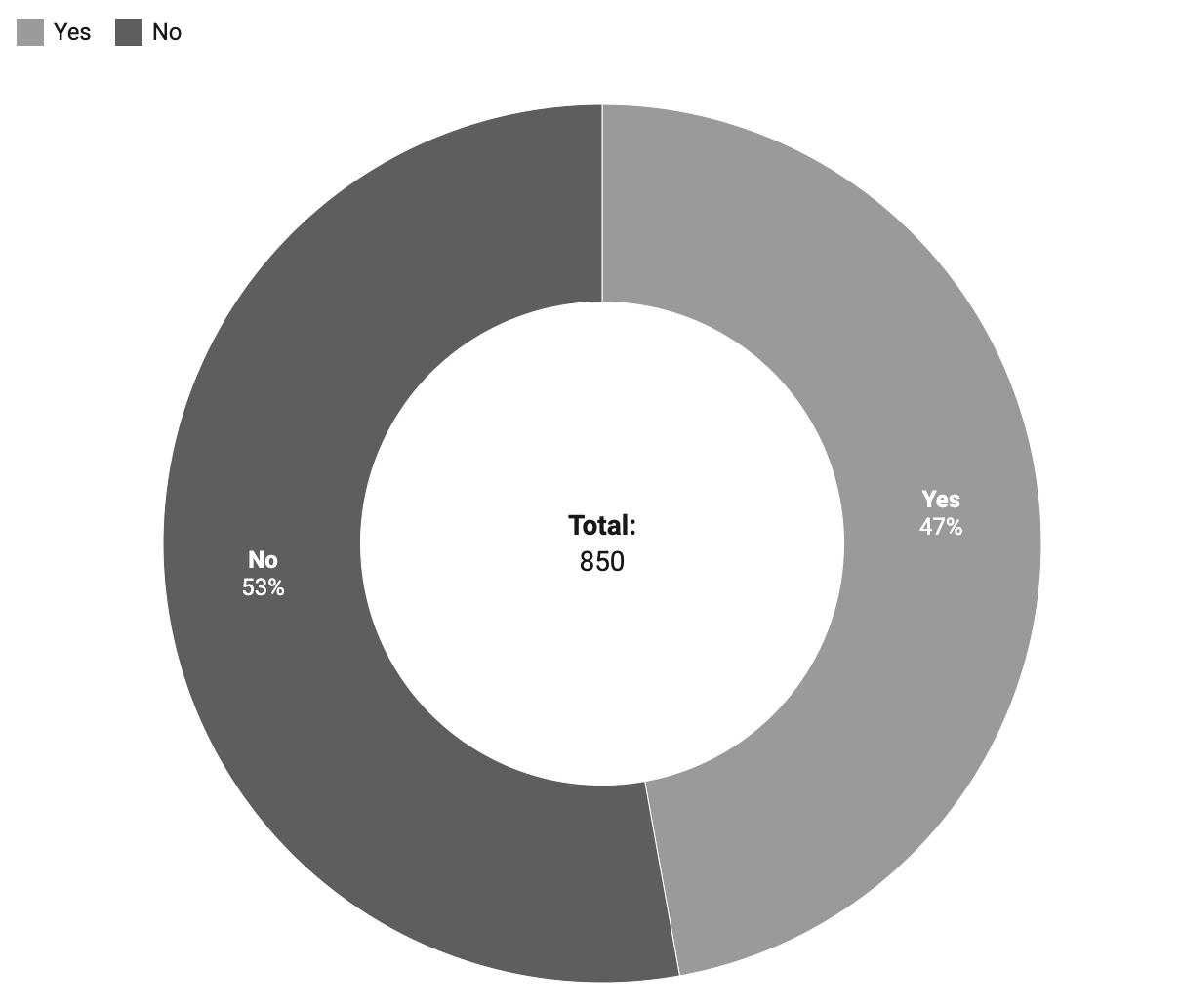
near perfect GPA rounding to 4.0.
Academic Integrity
Almost half of respondents — 47.2 percent — admitted to having cheated in an academic context while at Harvard, nearly double the 25.5 percent of respondents in the Class of 2023. Most students suspect that even more of their classmates have cheated. On average, respondents expected that 55 percent of classmates cheated at some point during their time at Harvard.
Among respondents who said they cheated, 73 percent reported cheating on a problem set or regular homework assignment, and 56 percent on a paper, take-home exam, or a project. Around 16 percent admitted to cheating on a live exam in person or online, a marked drop from 39 percent last year.
Around a third of respondents whose GPA rounded to 4.0 admitted to having cheated in an academic context, compared to almost 20 percent in 2023 and 10 percent in 2022.
Just over 7 percent of respondents had to stand before the Administrative Board or the Honor Council for a disciplinary issue while at Harvard — a slight increase from last year. More than half of those students said they felt their disciplinary process was somewhat or very unfair.
The number of Honor Council cases dropped during the 2021-22 academic year from its all-time high, according to a report published last spring. During that time, the Honor Council reviewed 100 academic dishonesty cases, 12 of which resulted in withdrawals.
More than 30 percent of respondents
What is nearest to your GPA?

admitted to submitting work generated by an AI model for assignments that did not instruct them to do so. Among those students, 3 percent said they were caught submitting AI-generated work, and less than 1 percent said they faced disciplinary action.
Extracurriculars and Varsity Sports Seniors’ second top priority after academics was extracurricular activities. Nearly a quarter of respondents — 73 percent — rated extracurriculars as important or very important to their time at Harvard.
Respondents reported spending an average of 14.3 hours a week on extracurricular activities, a decrease of one hour from the Class of 2023 and a decrease of two hours from the Class of 2022.
Just over 11 percent of surveyed seniors reported participating in a varsity sport during their time at Harvard. More than half of those student athletes walked on to their team. Of the athletes recruited in high school, 81 percent played their sport through the end of their senior season. Of the athletes who walked on, only 41 percent played through the end of their time at Harvard.
House and Student Life
Lowell House received the highest marks for its accommodations this year, narrowly beating out Leverett House and Adams House, last year’s winner. Around 91 percent of surveyed Lowell residents reported they were very satisfied or somewhat satisfied with their living arrangements, while 86 percent of surveyed Leverett residents and 80 percent of surveyed Adams residents
Have you ever submitted work generated by an AI such as GhatGPT?

said the same.
For the third consecutive year, Kirkland House received the lowest ratings out of the 12 undergraduate houses, with 61 percent of resident respondents reporting feeling at least somewhat satisfied with their living arrangements. But the Dudley Co-Op received the lowest ratings overall, with only 50 percent of surveyed residents reporting feeling at least somewhat satisfied.
Pforzheimer House received the fourth highest ratings overall with a 79 percent satisfaction rate, despite its farther location within the Radcliffe Quadrangle.
During freshman spring, Harvard students choose a blocking group of up to seven other students to be placed in an upperclassmen house with. Blocking groups of eight people remained the most popular option with the Class of 2024, with 32 percent of seniors reporting having seven blockmates.
However, only 47 percent of respondents said their blocking group is still together, and 63 percent of respondents said they would feed at least one blockmate to the Harvard Square turkeys.
Most surveyed seniors — 54 percent — were not involved in any final clubs, sororities, fraternities, or other off-campus social organizations while at Harvard. Of the 24 percent who reported being part of a final club, 37 percent were part of a female final club, 41 percent were part of a male final club, and 22 percent were part of a co-ed final club.
Of the final clubs, the Fox Club received the highest favorability rating for the second consecutive year at 26 percent, followed by the Owl Club (just over 22 percent), the Delphic Club (22
percent), the Spee Club (20 percent), and the I.C. (19 percent).
On the other end of the spectrum, the Phoenix S.K. Club (The “P.S.K.”) received the highest unfavorability rating, with 46 percent of respondents reporting they had an unfavorable opinion of the organization. The Exister Society (The “X”) received the lowest favorability rating at 9.5 percent, followed closely by the A.D. Club (9.9 percent) and the Porcellian Club (11 percent).
At the time of the survey, 62 percent of senior respondents reported having attended a party hosted by a final club. Around a third of respondents said that final clubs and other social organizations were very important or important to their social experience at Harvard.
In contrast, seniors relied on off-campus venues more for opportunities to socialize: 46 percent of respondents said off-campus locales, like restaurants and bars, were at least important to their social experiences.
The Class of 2024 spent a great deal of time away from campus. A fifth of respondents said they studied abroad for one or more semesters, and 21 percent reported taking at least one semester off from Harvard. Of the students who took time off, 83 percent said they were away for two semesters, while 13 percent said they were away for just one semester.
More than 80 percent of student respondents who took time off said they did so primarily because of the pandemic. Nearly all of the surveyed students who decided to take time off — 98 percent — said they did not regret this decision, while 32 percent of students who did not take any time off said they regretted their decision.
THE HARVARD CRIMSON COMMENCEMENT 2024
7
July 6, 2020
Timeline
REMOTE START. Harvard announces that freshmen will be housed on campus for the fall semester, setting the stage for an in-person start with online-only courses.
September 9, 2021
HARVARD DIVESTS. After years of public pressure, Harvard committed to letting its remaining investments in the fossil fuel industry expire, paving the way for it to eventually divest from the sector.
April 1, 2022
UC DISSOLVED. Undergraduates voted overwhelmingly for the dissolution of their student government, the Undergraduate Council. The UC would later be replaced by the Harvard Undergraduate Association, whose inaugural presidents were members of the Class of 2024.
May 4, 2022
SHOPPING WEEK AXED. More than 60 percent of Harvard’s faculty voted to eliminate shopping week, which allowed undergraduates to try out classes at the start of the semester, in favor of previous-term registration.
Dec. 15, 2022
GAY ANNOUNCED. Claudine Gay, then-Dean of the Faculty of Arts and Sciences, is announced as Harvard’s 30th president and first person of color to lead America’s oldest institution of higher education.
Jan. 2, 2024
GAY RESIGNS. After just 185 days in office, Harvard President Claudine Gay resigned following fierce criticism of the University’s response to the Israel-Hamas war spiraled into allegations of plagiarism.
September 1, 2021
BACK TO CAMPUS. After more than a year of remote instruction and de-densified housing, Harvard returns to a fully in-person format with indoor masking, required vaccination, and self-testing.
Oct. 27–29, 2021
HGSU STRIKE. Harvard’s graduate student union went on a three-day strike during Freshman Parents’ Weekend as they negotiated their second contract with the University.
April 26, 2022
LEGACY OF SLAVERY. Harvard released a historic report acknowledging how slavery played an “integral” role in shaping the school, pledging $100 million to redress its ties to slavery.
June 8, 2022
BACOW STEPS DOWN. Larry Bacow announced he would step down at the end of the next academic year, ending a fiveyear tenure that saw the school through Covid-19 and the end of the Trump presidency.
June 29, 2023
AFFIRMATIVE ACTION FALLS. In a 6-2 decision, the Supreme Court ruled Harvard’s race-conscious admissions practices unconstitutional. The high-profile case marked a severe strike against the use of affirmative action in admissions nationwide.
April 24–May 14, 2024
ENCAMPMENT IN HARVARD YARD. Pro-Palestine protesters set up camp in Harvard Yard to demand that the University divest its endowment from Israel, reinvest in Palestine, and drop disciplinary charges against students involved in activism.
THE HARVARD CRIMSON COMMENCEMENT 2024
8 PAGE DESIGN BY TOBY R. MA — CRIMSON DESIGNER
By VIVI E. LU AND LEAH J. TEICHHOLTZ CRIMSON STAFF WRITERS
Harvard’s Covid-19 strict restrictions on in-person activities stalled campus social life for the Class of 2024’s first year at college. Nevertheless, the class made up for lost time — or skirted restrictions — as the pandemic passed.
Nearly half of respondents have been involved in final clubs, Greek life, or other off-campus social organizations, and 62 percent said they have attended a party hosted by a final club.
Like undergraduates at other colleges, Harvard students did more than just study — they hooked up, flirted on dating apps, and used drugs and alcohol. The vast majority of students consumed alcohol and a majority used marajuana in the past year. Surveyed students also voiced their opinions on social media platforms, including the recently deployed and highly viral platform Sidechat.
Others made it their mission to do as many of the Four Things as possible, with a quarter of the class reporting that they stripped and streaked through the Yard for Primal Scream and a similar percentage indicating they urinated on the John Harvard statue.
Sex and Dating
A third of respondents indicated that they dated one person during their time at Harvard, with 19 percent reporting they dated two people. Another 19 percent said they remained single while at Harvard. A plurality of seniors, or 19 percent, had one sexual partner during their time at the College, but 16 percent — the next highest percentage — said they never had a sexual partner on campus.
Around 34 percent of respondents lost their virginity before Harvard, while 17 percent had sex for the first time during freshman year — two higher percentage points than respondents of the Class of 2023 survey despite a freshman year marked by restrictions on socializing and a remote spring due to the Covid-19 pandemic. Around a fifth of surveyed seniors have never had sex at the time of completing the survey — a smaller percentage than the Class of 2023, for which a quarter of
Lifestyle

When did you first have
respondents had not yet had sex. Around 14 percent of respondents had more than 10 sexual partners during their time at the College, a similar proportion to last year’s graduates.
More than half of responding seniors have used a dating application during their time at Harvard — but of the 56 percent of students who used one, only a quarter were successful in finding a long-term relationship. Women were slightly more likely to have used a dating app, with around 58 percent reporting they had used one compared to 545 percent of men.
Drugs and Alcohol
Surveyed seniors’ habits indicated frequent recreational drinking and drug usage on campus.
Alcohol and marijuana, both legal for consumption by those over 21 years old in Massachusetts, saw the highest usage among surveyed seniors. Around 89 percent of respondents consumed alcohol in the past year, 45 percent drank at least once a week, and 13 percent drank more than
sex?
twice weekly. Roughly half of surveyed alcohol users began drinking before college, and 31 percent started imbibing in college before turning 21.
Alongside a recent increase in marijuana dispensaries in Cambridge, 65 percent of respondents reported using marijuana at least once in the past year, and 22 percent used marijuana at least once a week. Of surveyed marijuana users, 41 percent used marijuana before college and 4o percent used the drug during college but before turning 21 years old. Two-thirds of surveyed marijuana users bought some form of marijuana legally in Massachusetts.
Surveyed seniors enjoyed tobacco more than previous classes. Almost half used tobacco at least once in the last 12 months, a sharp increase from 27 percent of tobacco users in the Class of 2023 and 31 percent in the Class of 2022. Around 41 percent of respondents have used an e-cigarette or vape.
Illicit drugs saw less frequent usage. Around 16 percent of respondents used mushrooms, 12 percent used cocaine, 7 percent used LSD, and 6 percent used ecstasy in the past year. Ten percent of students re -
ported using non-prescribed “study drugs” like Adderall in the past year, a slight increase from the Class of 2023’s reported 8 percent and the Class of 2022’s 6 percent.
The Four Things
Per tradition, Harvard undergraduates must do three things before Commencement: have sex in the stacks of Widener Library, urinate on the John Harvard statue, and streak naked through Harvard Yard on the eve of finals period in a rite dubbed “Primal Scream.” The fourth, unofficial task is to jump into the Charles River off the John W. Weeks Footbridge.
Just under half of respondents have not completed any of the four dares. Though Primal Scream was the tradition completed by the greatest percentage of respondents, the portion of seniors who completed the nude run dropped from 36 percent last year to 25 percent this year. During their freshman year, members of the Class of 2024 were asked to return home for Thanksgiving Break and until the end of the semester, meaning the class was not on campus for their freshman year Primal Screams, which may have contributed to their lower completion rates.
In line with last year’s graduates, 24 percent of respondents reported that they had urinated on the John Harvard statue, while 11 percent had copulated in the Widener stacks. Around 167 percent of seniors plunged into the Charles, marking a slight uptick from 11 percent of last year’s surveyed seniors.
Respondents identifying as male were more likely to have done each of the four things compared to female respondents. Those who had attended parties or events hosted by final clubs were also more likely to have done the four things; for instance, a third of party or final club event attendees reported having urinated on the John Harvard statue versus less than 13 percent of non-attendees.
Technology and Social Media
Among surveyed seniors, the three most used social media platforms were Instagram, which claimed 68 percent of respondents, the networking platform LinkedIn at 56 percent, and Sidechat — the campus-focused forum for gossip and discussions — at
THE HARVARD CRIMSON COMMENCEMENT 2024
9
45 percent.
Students were divided on their views of Sidechat, with around 43 percent regarding it favorably and 38 percent holding unfavorable views on the platform.
Facebook, Reddit, Snapchat, TikTok, and X — formerly known as Twitter — each was used by about a third of respondents. Around 5 percent of respondents did not use any social media platforms.
Approximately 55 percent of surveyed seniors deleted some form of social media while at Harvard, a slight increase from last year’s 40 percent. Of those respondents, 29 percent reported deleting TikTok and another 29 percent reported deleting Snapchat. Although Instagram was the most deleted app among surveyed members of the Class of 2023, it ranked third among most deleted platforms for the Class of 2024.
Around 65 percent of respondents spent at least one hour on social media on an average day. Roughly 31 percent of respondents spent two hours or more, and 6 percent used social media for more than four hours on a typical day.
While most surveyed seniors have never owned cryptocurrency, 18 percent of respondents currently own cryptocurrency and 14 percent of surveyed seniors have owned cryptocurrency in the past.
Which of the following social medias do you use?

How many people have you dated during your time at Harvard?

Which of the following have you done?
How many sexual partners have you had during your time at Harvard?


THE HARVARD CRIMSON COMMENCEMENT
2024
10 PAGE DESIGN BY TOBY R. MA — CRIMSON DESIGNER
68% 45% 56% 31% 30% 30% 33% 4%
LinkedIn Instagram TikTok X/Twitter Facebook Sidechat Reddit Tumblr
By LEAH J. TEICHHOLTZ AND MEIMEI XU CRIMSON STAFF WRITERS
The Class of 2024 saw a tumultuous last year of college as Harvard affiliates, student groups, and top administrators made headlines across the country.
Harvard’s first Black president, Claudine Gay, took office at a politically contentious time for higher education. Earlier that summer, the U.S. Supreme Court’s momentous ruling effectively ended affirmative action in college admissions.
Then, just a week after Gay’s inauguration, the College’s pro-Palestine activists sparked national criticism for issuing a statement blaming Israel for Hamas’s Oct. 7 attacks and all subsequent violence. Affiliates, donors, and alumni turned their outrage toward Harvard, condemning the administration’s response to the attack and antisemitism on campus. The backlash against Harvard came to a head when Gay testified before Congress on efforts by the school to address anti-semitism. In addition to the controversy over the Israel-Hamas war, Gay faced a series of allegations of plagiarism concerning her academic work.
In early January, Gay resigned from her post after just 185 days in office, marking the shortest presidential tenure in Harvard’s history.
Pro-Palestine student activism continued into the spring, when the unrecognized group Harvard Out of Occupied Palestine established an encampment in Harvard Yard demanding the University divest from investments in Israel and rescind its suspension of the Harvard Undergraduate Palestine Solidarity Committee. The 20-day encampment ended on May 14 following a negotiation between protesters and interim University President Alan M. Garber ’76.
Administration
Favorability for Garber was higher than for Gay, at 49 percent versus 35 percent, respectively. Around 17 per-
Campus Politics
cent of respondents were unfavorable toward Garber and 34 percent said they had no opinion or lacked information necessary to respond.
This was in stark contrast to Gay, about whom 42 percent of respondents were unfavorable and 23 percent did not specify an opinion. The plurality of respondents, or 41 percent, viewed Gay’s choice to resign as University president in January positively, while a third viewed the decision unfavorably.
Around a quarter of respondents viewed the Harvard Corporation — the University’s top governing board — favorably, but 45 percent said they were unfavorable toward the body. The Corporation’s opacity has come under heightened scrutiny in recent months amid Harvard’s leadership crisis.
Around 52 percent of surveyed seniors viewed Dean of the College Rakesh Khurana favorably, marking a slight uptick from 50 percent favorability expressed in last year’s survey of the Class of 2023. A quarter of respondents viewed Faculty of Arts and Sciences Dean Hopi E. Hoekstra in a favorable light. Seventy percent of respondents indicated that they lacked information or did not have an opinion on Hoekstra, who started in her role last August.
Harvard College Dean of Students Thomas Dunne, who came to Harvard from Princeton last year, had a favorability of only around 19 percent, with 23 percent reporting an unfavorable opinion. As with Hoekstra, large portions of the class did not have an opinion or lacked information on the newly hired administrator.
Student Government
The University’s administration wasn’t the only body to see a major leadership shakeup during the Class of 2024’s time at Harvard. The College’s newly formed student government, the Harvard Undergraduate Association, saw its former Co-President John S. Cooke ’25 ousted in a symbolic April recall vote. Less than 5 percent of respondents said they viewed Cooke favorably, and 64 percent viewed him unfavorably. Seventeen percent of re -
spondents reported favorable views of former Co-President Shikoh M. Hirabayashi ’24, who faced an unsuccessful recall effort, while 30 percent viewed him unfavorably.
Most respondents did not have strong views on current HUA Co-Presidents Ashley C. Adirika ’26 and Jonathan Haileselassie ’26, who were elected to their roles in April. For both Adirika and Haileselassie, more than three-fourths of respondents did not have an opinion or enough information to offer one.
During the Class of 2024’s sophomore spring, students voted overwhelmingly to dismantle the HUA’s predecessor, the Undergraduate Council. But graduating seniors have expressed high levels of dissatisfaction with the HUA in its rocky first years as the new undergraduate student government. Just 8 percent of respond-
ing seniors viewed the HUA in a favorable light, compared to 59 percent who are unfavorable toward the body. Last year, only 7 percent of respondents from the Class of 2023 viewed the HUA favorably.
Pro-Palestine Activism
Last fall, Harvard and its pro-Palestine activists were thrust into the national spotlight after the Harvard Undergraduate Palestine Solidarity Committee released a widely criticized statement that held Israel “entirely responsible for all unfolding violence” immediately following the Oct. 7 attacks on Israel by Hamas.
The PSC was suspended for the spring by Harvard in April for violating campus protest rules, a disciplinary measure that 46 percent of respondents agreed with. The vast ma-

THE HARVARD CRIMSON COMMENCEMENT 2024
11 PAGE DESIGN BY ISABEL W. BROWN — CRIMSON DESIGNER


jority of students who identified as conservative or very conservative were supportive of the suspension while the opposite was true for students identifying as progressive or very progressive. The protests reached a fever pitch when activists occupied Harvard Yard with an encampment for 20 days in April and May. In the aggregate, 52 percent of surveyed students were unfavorable toward the encampment and 34 percent viewed the high-profile protest favorably.
Favorability for the encampment shifted markedly following a May 6 email from Garber that suggested it could interfere with Commencement proceedings: 53 percent of respondents who answered the survey in the week before the email supported the encampment, but just 18 percent in the subsequent week said the same.
decisions as overly restrictive.
Respondents were also split on whether Harvard should divest its endowment from institutions that support “Israel’s occupation of Palestine,” per a proposed HUA referendum that was postponed indefinitely in April. Nearly 48 percent of respondents disagreed that Harvard should divest, while 34 percent said they believed the University should.
Police
The presence of police on college campuses has received renewed attention across the country as city, state, and campus police continue to arrest and clash with pro-Palestine activists participating in encampments. Last month, New York City police arrested dozens of protesters occupying Hamilton Hall at Columbia University, and many universities have seen similar arrests since. Nevertheless, no Harvard protesters participating in encampments this semester have been arrested.
Most respondents — 52 percent — indicated that they trust the Harvard University Police Department, with 17 percent saying they trust HUPD fully and 35 percent saying they trust it somewhat. Around 14 percent said they distrust the department somewhat, and 10 percent said they distrust it fully.
mative action favorably. This marked a step down from last year’s surveyed graduates, who had reported 63 percent favorability.
Asian respondents were the least likely group to support race-conscious affirmative action, while Latinx and Black respondents were on average more supportive of the practice. A notably larger percentage of respondents — more than 76 percent — were in favor of class-based affirmative action in college admissions.
The admissions lawsuit against Harvard also raised questions about the College’s use of legacy preferences in its admissions processes. Overall, 57 percent of respondents held unfavorable views toward legacy admissions and 23 percent described their views as favorable. Students who had at least one parent attend the College were generally more supportive of legacy admissions, at 41 percent.
Favorability of legacy admissions increased to 38 percent for respondents who reported a combined parental income of greater than $500,000, while 26 percent of those in the lowest income bracket of under $40,000 supported the practice. First-generation students were more critical of legacy preferences, with 65 percent of these respondents voicing unfavorable views compared to 54 percent of those who do not identify as first-generation.
Supporters and opponents of the encampment differed sharply in their views of Harvard’s last two presidents. Eighty-four percent of those who viewed the encampment unfavorably were also favorable toward Garber, while only 10 percent of students who supported the encampment reported a positive view of him. The reverse was true for Gay, who was viewed favorably by just 19 percent of respondents who disfavored the encampment and 52 percent of those who favored it.
Students were divided on their views of Harvard’s approach to the protests. Thirty-one percent of respondents indicated that the University has been too permissive in its handling of pro-Palestine campus protests, while 27 percent were satisfied with the administration’s approach. Another 27 percent of students viewed Harvard’s
Approximately 74 percent of surveyed Harvard seniors said they do not believe HUPD should be abolished, while 6 percent said they support abolition.
Seniors reported lower trust toward the Cambridge Police Department: 41 percent of respondents from the Class of 2024 said they trust CPD, while 26 percent said they distrust CPD. The department garnered major backlash in the Class of 2024’s junior spring after CPD Officer Liam McMahon fatally shot Sayed Faisal, a University of Massachusetts Boston student.
Admissions
Harvard’s admissions processes also faced increased scrutiny after the Supreme Court struck down the use of race-conscious affirmative action in higher education admissions last June. A slight majority, or 51 percent of respondents, viewed race-based affir-
Mental Health
The majority of surveyed seniors said they have experienced depression at some point during their time at the College, while 19 percent said they were unsure and 30 percent said they have not. While 42 percent of last year’s graduates had reported seeking help from Harvard University Health Services’ Counseling and Mental Health Service for mental health, 35 percent of respondents this year said they had.
Sixteen percent of respondents said they sought mental health care from the new TimelyCare telehealth service offered through HUHS, compared to 13 percent of the Class of 2023. In similar numbers to last year, 10 percent of surveyed graduates sought mental health support from one of the litany of student-run peer counseling groups offered on campus. Thirty-one percent consulted off-campus professionals for help.
THE HARVARD CRIMSON COMMENCEMENT 2024
12 PAGE DESIGN BY ISABEL W. BROWN — CRIMSON DESIGNER

Around 31 percent of responding seniors were satisfied or very satisfied with the care they received from CAMHS, a slight decrease from last year’s 34 percent satisfaction. Meanwhile, 44 percent of respondents were at least somewhat satisfied with the care received from TimelyCare and on-campus peer counseling groups. Nearly 75 percent of those who said they received support from an off-campus professional reported satisfaction.
Campus Organizations
The Harvard Crimson’s favorability rating — 48 percent — dropped 11 percent from last year’s senior survey. Around 31 percent of Class of 2024 respondents rated the publication unfavorably, a 17 percent increase from last year.
Around 22 percent of respondents said they approve of the Harvard Lampoon, a semi-secret Sorrento Square social organization that used to occasionally publish a so-called humor magazine, a 4 percent increase from last year. Half of students said they disapprove of the organization.
Approximately 24 percent of the Class of 2024 view the Harvard Independent favorably, while 19 percent view it unfavorably. A majority of surveyed students had no opinion of the Independent at all or lacked information to form one, at roughly 59 percent. Just 9 percent of respondents reported a favorable opinion of the Harvard Salient, a conservative campus publication, while 65 percent had unfavorable
years of allegations against Comaroff — who denies all wrongdoing — and the plaintiffs filed an amended complaint detailing further instances of harassment in June 2022.
The school allowed Comaroff to return to campus in fall 2022 to teach non-required courses, inciting multiple protests.
The Department of Education recently announced updates to its Title IX regulations, adding a definition of “hostile environment harassment” to its definition of sex-based harassment. The changes will take effect Aug. 1, and revisions to Harvard’s own Title IX policies are in progress.
while 45 percent reported to Harvard administrators. Around 14 percent reported to the Harvard University Police Department.
Legacy of Slavery and Denaming
views.
Harvard seniors were split over the Institute of Politics, with 24 percent of respondents approving and 32 percent disapproving of the organization. The Harvard College Republican Club received a favorability rating of 11 percent and a disapproval rating of 30 percent, while the Harvard College Democrats received 20 percent approval and 15 percent disapproval.
Around 30 percent of respondents approve of Harvard Student Agencies and 21 percent disapprove. The Phillips Brooks House Association had 60 percent favorability and 3 percent unfavorability.
Students were also divided over final clubs, fraternities, and sororities. Around 29 percent expressed approval for these organizations, while 37 percent expressed disapproval.
Sexual Assault and Harassment
In the wake of several major sexual harassment controversies involving Harvard faculty members, the Class of 2024 witnessed a major campus push against harassment and gender inequity on campus and toward greater transparency of Title IX policies.
After The Crimson published an investigation detailing allegations of sexual harassment against three Anthropology professors, Harvard placed professor John L. Comaroff on unpaid leave in early 2022. In February of that year, three Anthropology graduate students filed a federal lawsuit against Harvard alleging the school ignored
Approximately 35 percent of surveyed students from the Class of 2024 view Harvard’s current Title IX policies favorably, and 19 percent view them unfavorably. Among respondents, 9 percent said they are very satisfied with Harvard’s efforts to prevent sexual harassment and assault, 15 percent said they are somewhat satisfied, 24 percent said they are somewhat dissatisfied, and 20 percent said they are very dissatisfied.
Around 19 percent of respondents said they have been sexually assaulted or harassed at Harvard, while 81 percent have not. Among those who have experienced assault or harassment, 20 percent said they reported the incident while 80 percent did not. Most, or 55 percent, of those who chose to report did so to the Office for Gender Equity,
In 2022, Harvard published its landmark Legacy of Slavery report on the University’s historical and financial ties to slavery, as well as seven recommendations for reparative efforts. The University has since specifically pledged $6 million toward digitizing and preserving African American historical collections at HBCUs. Harvard has also set aside funding for projects related to addressing systemic inequities faced by descendants of slavery and donated $500,000 to the Royall House and Slave Quarters.
Around 19 percent of respondents have favorable views of Harvard’s handling of its historical ties to slavery, and 26 percent have unfavorable views.
Students and affiliates have also pushed for the denaming of places on campus like Winthrop House, Mather House, and Wadsworth House, which carry the names of slave owners. Around 27 percent of respondents said they support the renaming of buildings named after slave owners, while 32 said they do not support it. This year’s survey results represent a marked decrease in support for renaming from last year, when 43 percent of surveyed seniors answered in favor.

THE HARVARD CRIMSON COMMENCEMENT 2024
13



How satisfied or dissatisfied have you been with your living arrangements at Harvard?
At a Glance




THE HARVARD CRIMSON COMMENCEMENT 2024
15 PAGE DESIGN BY TOBY R. MA — CRIMSON DESIGNER
At a Glance
Did you receive any financial aid from Harvard?

Where the Class of 2024 is Living After Graduation
11.3 percent of graduates indicated they would live outside of the United States. 11.6 percent said they were not sure where they would be living.
To what extent did your family’s socioeconomic status inform your post-graduate career plans?

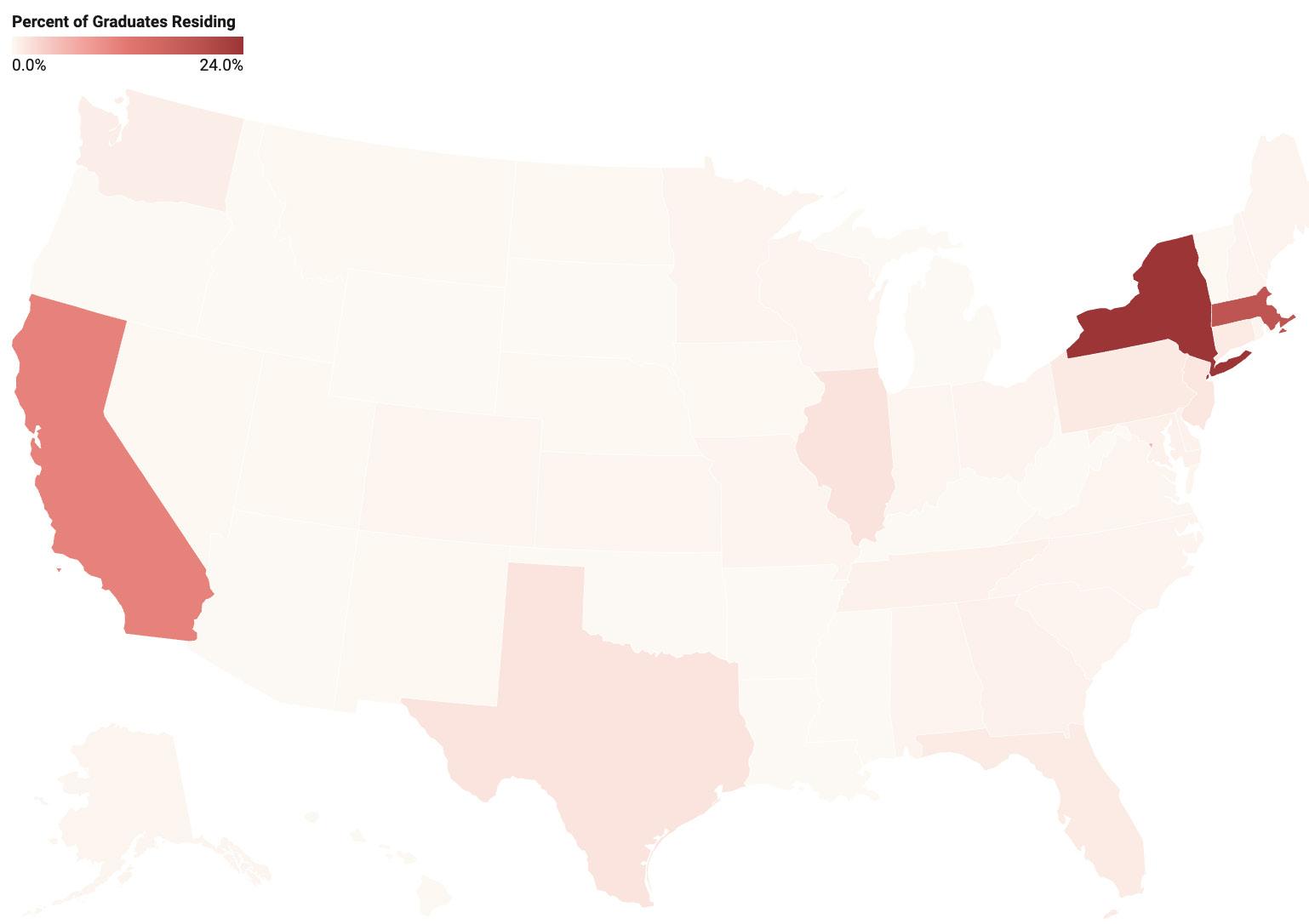
THE HARVARD CRIMSON COMMENCEMENT 2024
16 PAGE DESIGN BY TOBY R. MA — CRIMSON DESIGNER
Favorability of the Dobbs v. Jackson Decision by Gender, 2023 vs. 2024
In 2023, 13 respondents to this question identified as genderqueer/non-binary and 1 said they prefer not to specify their gender identity. In 2024, 18 identified as genderqueer/non-binary and 2 declined to specify. Because of low sample size, percentage breakdowns are not shown.

Drug Use in the Class of 2024

How many times have you contracted Covid-19?

Sexuality Prior to Harvard vs. Now

THE HARVARD CRIMSON COMMENCEMENT 2024 17
At a Glance
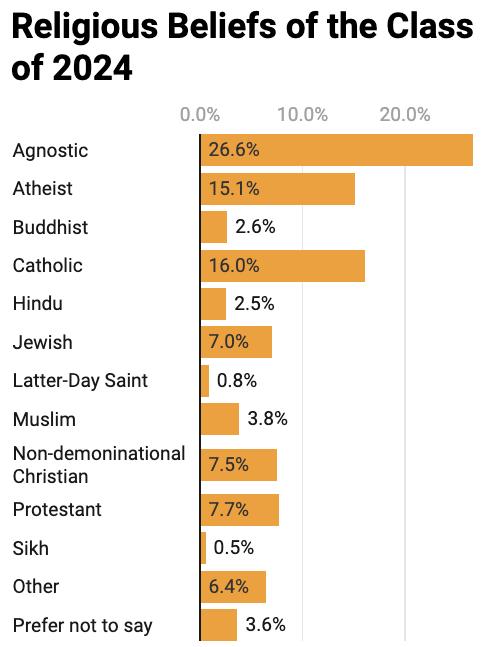


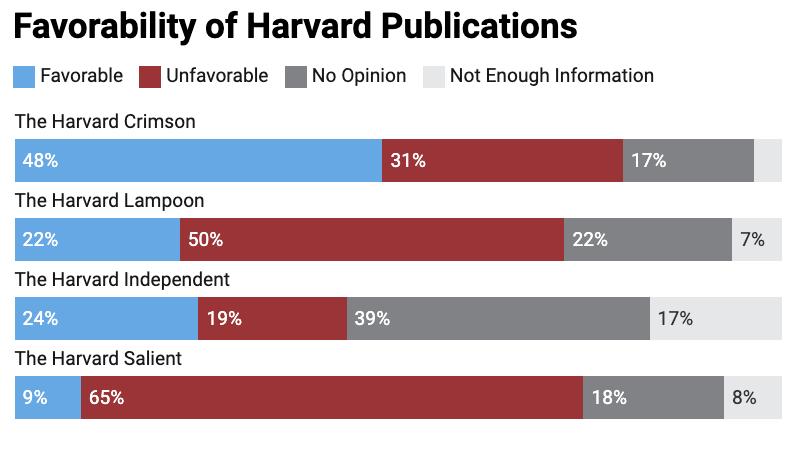
THE HARVARD CRIMSON COMMENCEMENT 2024 18 PAGE DESIGN BY TOBY R. MA — CRIMSON DESIGNER
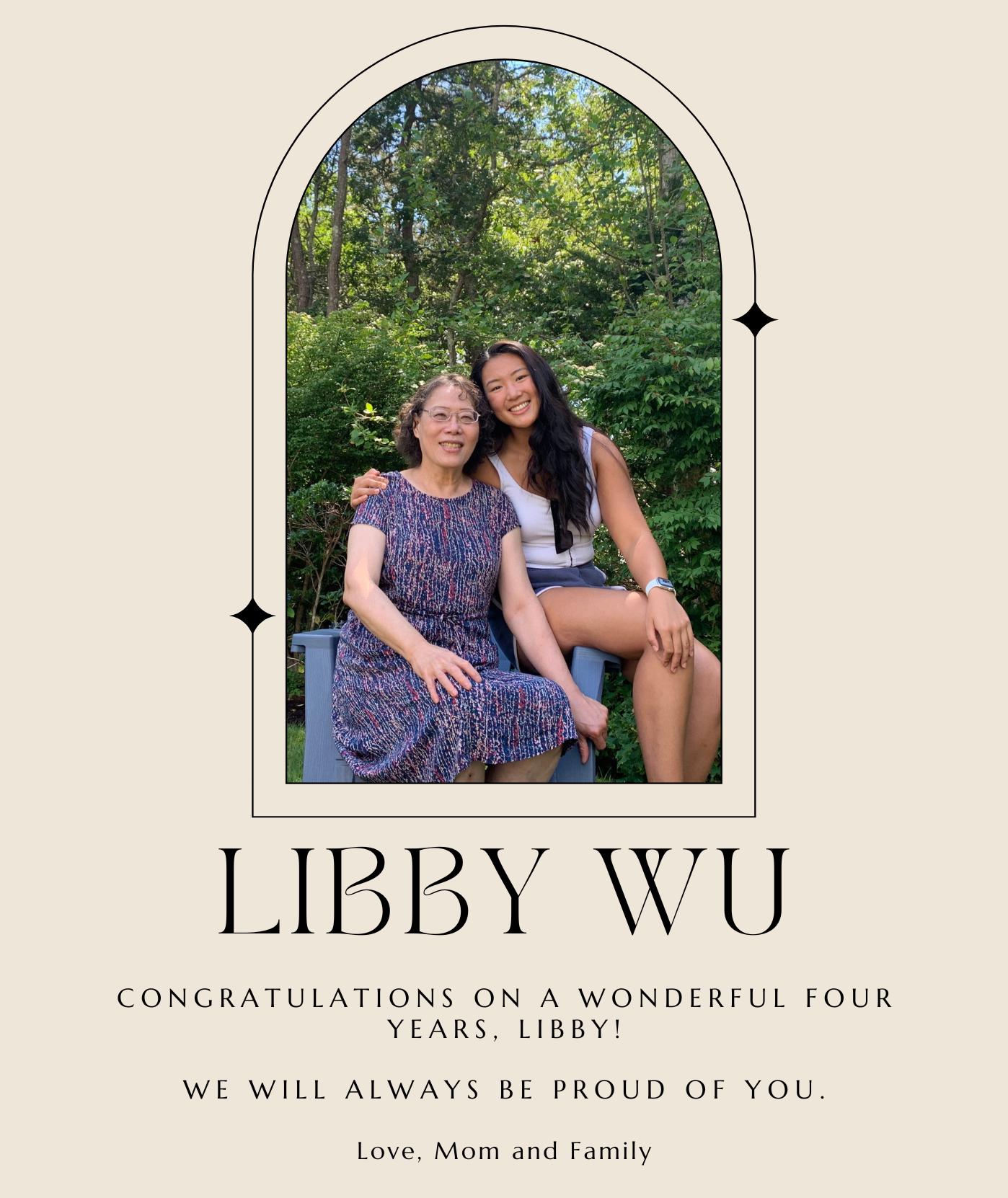


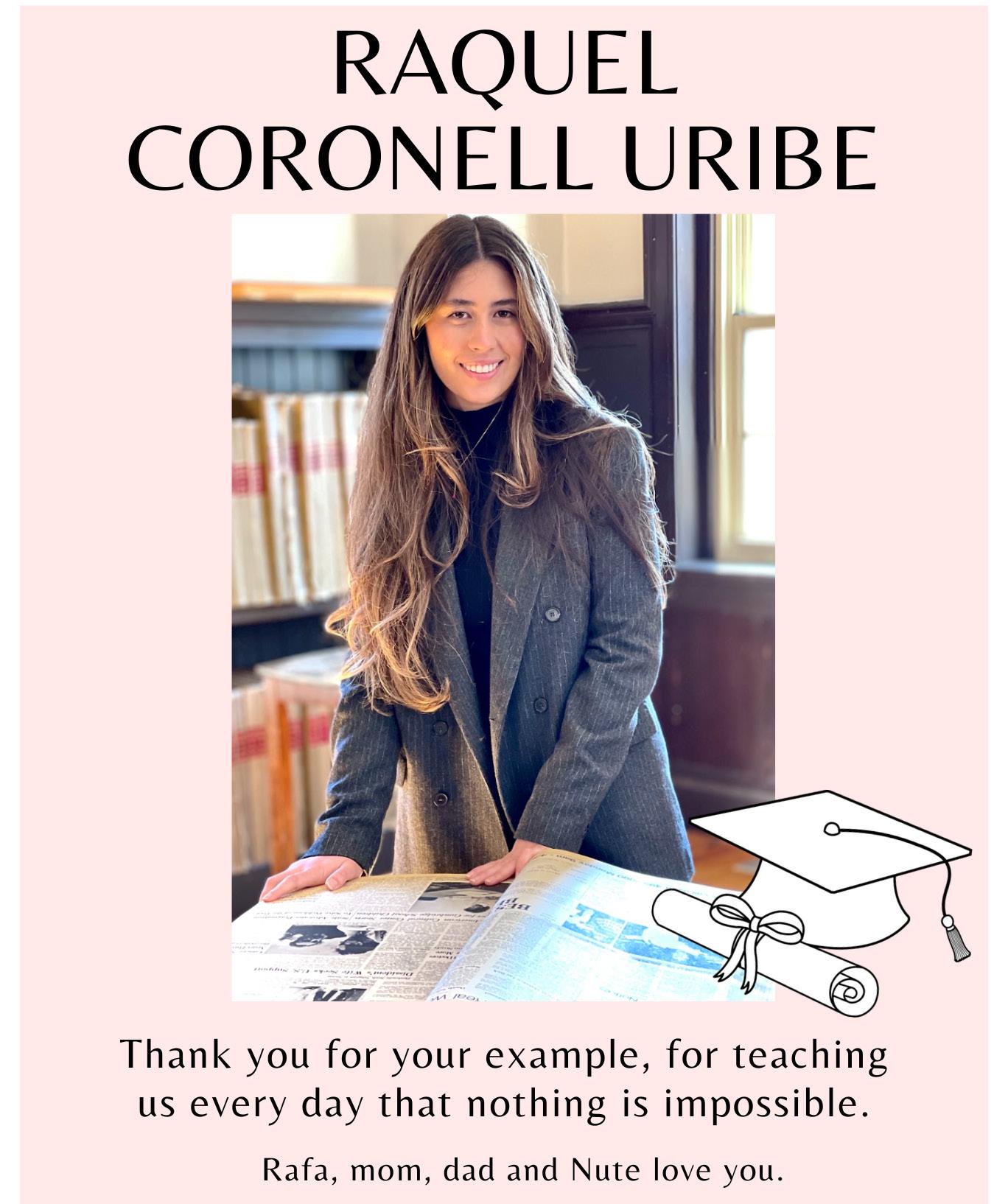
 By LEAH J. TEICHHOLTZ AND MEIMEI XU CRIMSON STAFF WRITERS
By LEAH J. TEICHHOLTZ AND MEIMEI XU CRIMSON STAFF WRITERS
The Class of 2024’s time at the College was bookended by fierce national elections and political polarization. Graduating seniors navigated Harvard as the country grappled with its approach to the Covid-19 pandemic, Russia’s invasion of Ukraine, the fall of affirmative action, and the Israel-Hamas war, among other charged issues.
On the whole, surveyed members of this year’s graduating class identify as less progressive than last year’s class, and their views on various national issues are overall less liberal-leaning than those of the Class of 2023. Still, the Class of 2024 overwhelmingly disapproves of former President Donald Trump, and the majority said they
National Politics
would vote for President Joe Biden in the 2024 presidential election, though they are lukewarm on Biden and Vice President Kamala Harris overall.
Political Allegiances
The majority of respondents to the senior survey, or 59 percent, described their views as progressive or very progressive prior to coming to Harvard. Seniors roughly maintained their political views through graduation, with approximately 55 percent identifying as progressive or very progressive when they responded to the survey.
The portion of the class that reported conservative or very conservative views remained stable, at 13 percent prior to entering Harvard and at graduation. The number of surveyed students identifying as moderate expanded from 21 percent to 25
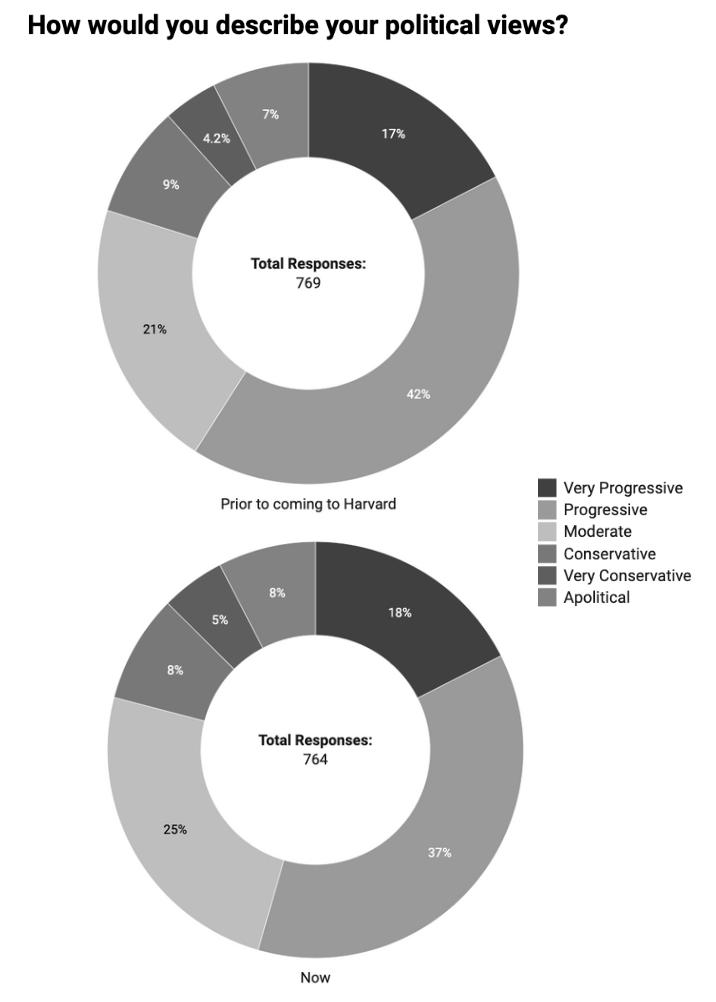

percent over the course of the class’s time at Harvard. Female respondents were more likely to be progressive than male respondents, aligning with recent national trends.
Overall, surveyed seniors from the Class of 2024 were less progressive than the Class of 2023. Around 65 percent of respondents to last year’s survey identified as progressive or very progressive, 10 percentage points higher than this year’s class. Approximately 22 percent of Class of 2023 respondents identified as moderates, 3 percentage points lower than the Class of 2024. Still, the percentage of self-identified conservatives between the Class of 2023 and 2024 remained relatively similar — 12 and 13 percent, respectively.
Respondents said that they mostly aligned with their friends on political views. Thirteen percent of respondents said they shared political perspectives with all their friends, and 52 percent said the statement was true for most of them. Only 2 percent of
respondents said they shared political outlooks with none of their friends. Conservatives were less likely to share political views with at least some of their friends than progressives, though respondents who described themselves as very conservative were the most likely to share political views with all of their friends.
For many members of the Class of 2024, these political alignments would also impact their dating choices. Forty-seven percent of respondents said they would not consider entering a serious romantic relationship with someone who supported the nominee of the opposite party, while around a third said they would. The remaining 21 percent of respondents were unsure. Conservatives were much more likely to consider dating someone who supported a nominee of the opposite party than progressives, with 72 percent of respondents identifying as conservative reacting positively to the statement versus 21 percent of
The Harvard Crimson COMMENCEMENT 2024
20 PAGE DESIGN BY TOBY R. MA — CRIMSON DESIGNER

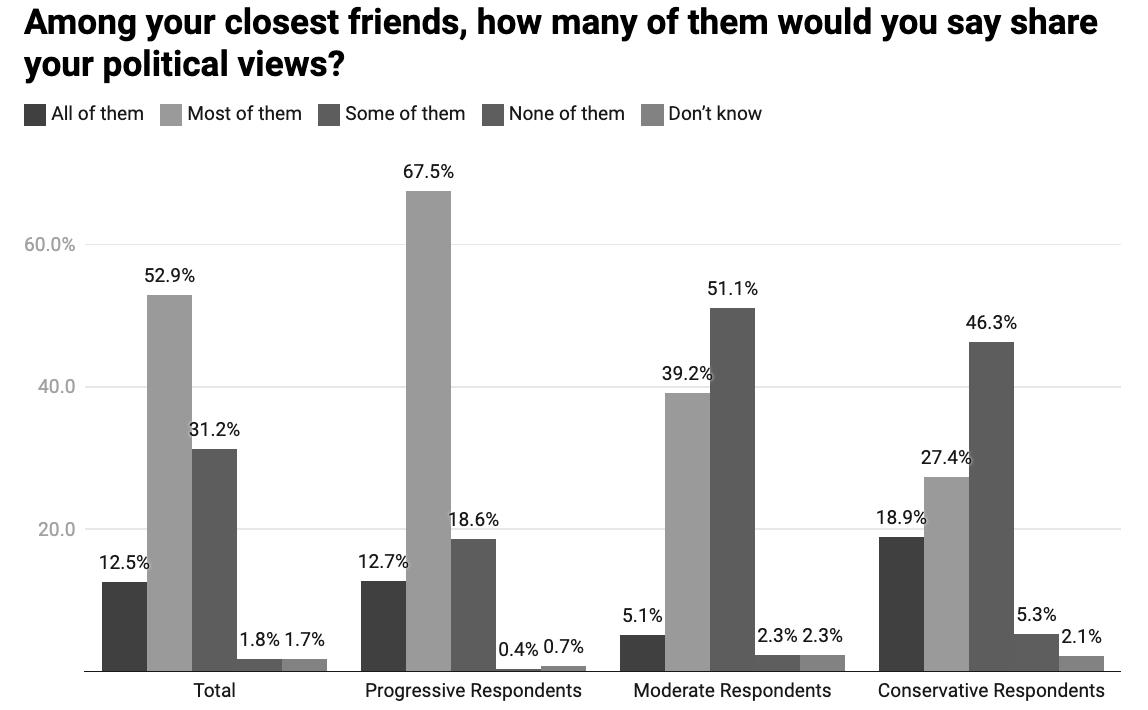
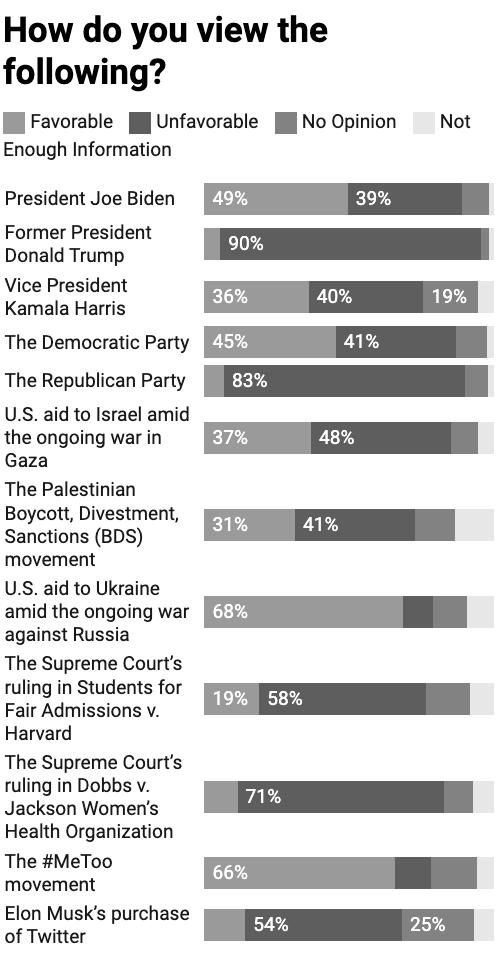

The Harvard Crimson COMMENCEMENT 2024 21

respondents identifying as progressive.
Around half of survey-takers, or 49 percent, said they are registered Democrats. A greater proportion are registered Independents than Republicans, at 13 percent versus 9 percent, respectively. More than a quarter of respondents are not registered members of any party, and 77 percent of respondents are registered to vote in the 2024 U.S. elections this November, with another 12 percent reporting plans to register in time to vote.
Political Perspectives
Ahead of November’s elections, the majority of surveyed Harvard seniors — 62 percent — said they would vote for President Joe Biden if the presidential elections were held the day they took the survey. Around 11 percent of the Class of 2024 said they were undecided, 6 percent said they would vote for former Harvard professor Cornel West
’74, 6 percent said former President Donald Trump, 3 percent said independent candidate Robert F. Kennedy Jr. ’76, and 3 percent said they do not plan to vote.
A smaller percentage of the Class of 2024 reported favorable views of Biden than the percentage who said they would vote for him, but the total with favorable views roughly corresponded with the percentage of registered Democrats in the class. Biden received a favorability rating of 49 percent from respondents, while 39 percent of the class said they viewed him unfavorably. Biden’s favorability rating barely changed from last year’s questionnaire, but his unfavorability rating increased by almost 8 percentage points. In this year’s survey, only 9 and 2 percent said they had no opinion or didn’t have enough information about the President, respectively.
Favorability ratings for Vice President Kamala Harris were lower, at 36 percent. Around 40 percent of the Class of 2024 said
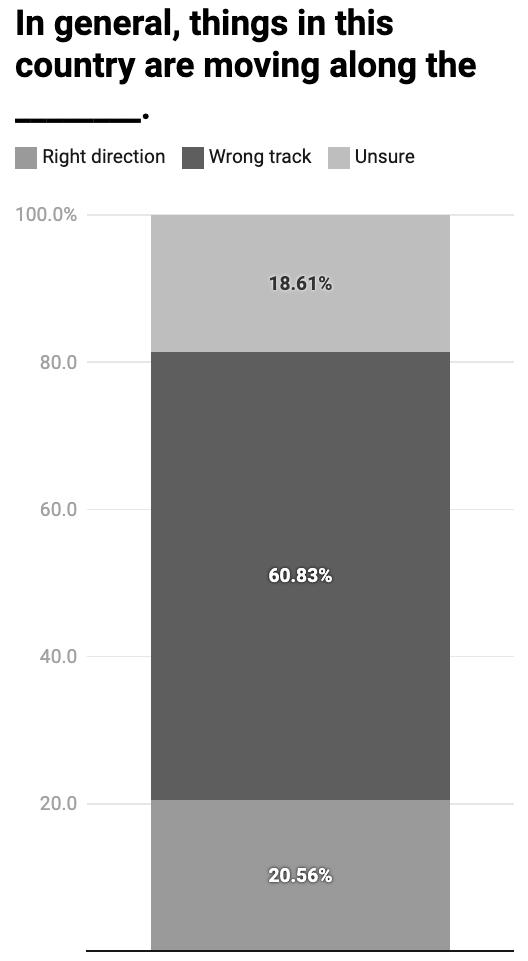
they disapprove of the vice president, while 19 and 6 percent said they have no opinion or not enough information, respectively. Around 45 percent of the class approve of the Democratic Party, while 41 percent disapprove.
An overwhelming majority of Harvard seniors — 90 percent — disapprove of Trump, with only 5 percent of respondents saying they view him favorably. Around 83 percent of the Class of 2024 have an unfavorable opinion of the Republican Party, while only 7 percent approve of the party.
A plurality of Harvard seniors viewed U.S. aid to Israel amid the war in Gaza unfavorably: 48 percent disapproved, and 37 percent approved. Around 41 percent disapproved of the Palestinian Boycott, Divest, Sanctions movement, and 31 percent approved.
Around 68 percent of the class approved of U.S. aid to Ukraine during the ongoing war between Russia and Ukraine, with 10 percent disapproving.
Compared to the Class of 2023, a smaller percentage of the Class of 2024 approve of the #MeToo movement — from 77 percent in 2023 to 66 percent in 2024, while disapproval percentages increased from 7 percent to 12 percent. A greater proportion of male-identifying respondents disapprove of the movement: Of male respondents, 55 percent approve and 18 percent disapprove, while 77 percent approve and 7 percent disapprove among female respondents.
A smaller percentage of the Class of 2024 disapproves of the Dobbs v. Jackson Women’s Health Organization U.S. Supreme Court decision than did the Class of 2023 — from 79 percent in 2023 to 71 percent in 2024. Around 11 percent of this year’s graduating class approve of the decision, while 9 percent of last year’s class approved. Among male respondents, 15 percent viewed the decision positively and 67 negatively, and among female respondents, 8 percent viewed the decision positively and 76 negatively.
The Harvard Crimson COMMENCEMENT 2024
22 PAGE DESIGN BY TOBY R. MA — CRIMSON DESIGNER
By ERIC YAN AND SARAH GIRMA CRIMSON STAFF WRITERS
The Class of 2024 began college scattered around the world, from childhood bedrooms to time zones on the opposite side of the globe to even the Radcliffe Quad. But after three years in Cambridge, Harvard’s newly minted graduates will soon converge on familiar locations and careers.
Almost half of those surveyed from the Class of 2024 will remain in the Northeast, with New York and Massachusetts as the most popular locations. The majority — 58 percent — of Harvard’s graduating class will immediately enter the workforce, and more than half will take jobs in finance, tech, or consulting, up slightly from 41 percent last year. Two in five seniors taking a job will command starting salaries well into the six figures.
In line with previous years, approximately 21 percent of respondents from the Class of 2024 will further their education at graduate or professional schools. Ten percent of surveyed Harvard seniors will pursue a fellowship, an increase from last year’s figure of 6 percent, while another 8 percent remain undecided.
New Faces, Same Places
Though the vast majority of Harvard’s graduating class will move out of Cambridge shortly after commencement, many
After Harvard
seniors won’t go far. The Big Apple remains highly appealing, with nearly one-quarter of fresh graduates moving to New York. Massachusetts comes in second, attracting one in five surveyed seniors, and 11 percent will fly across the country to the sunny state of California.
Eleven percent of respondents will be moving internationally, most of whom are relocating to Europe, which will welcome 7 percent of surveyed Harvard graduates. Two percent will move to Asia, while 1 percent will find their new home in Latin America.
As expected, postgrad destinations correlate strongly with career plans. Almost two-thirds — 64 percent — of surveyed seniors working in finance will be in New York, while the nation’s capital will welcome half of those pursuing jobs in government or politics. Europe is the top destination for those pursuing fellowships, attracting 28 percent of such graduates.
Premier Careers
Finance, tech, and consulting jobs remain the three most popular industries for Harvard graduates starting their careers, consistent with past years.
Approximately 21 percent of graduates this year will take jobs in finance, and 16 percent of seniors will start in tech — a modest uptick from last year’s 12 percent figure. The fraction of graduates going into consulting fell to 13 percent from 19 percent last year. Nine percent of Harvard se -


niors will work in academia or research. Career choices differ somewhat between genders, most starkly in tech and finance: While 20 percent of surveyed male graduates plan to work in tech, just 13 percent of female graduates plan to do the same. Similarly, 26 percent of surveyed male graduates opted for careers in finance, compared to just 18 percent of female graduates.
Family income also played a role in seniors’ career choices. For respondents with a family income under $40,000, academia and finance were the top fields, with 19 percent opting for each. By contrast, a third of seniors who said their family earned $500,000 or more plan to enter finance while just 9 percent plan to take a job in academia.
Lofty Salaries
As in previous years, most Harvard seniors set to enter the workforce will earn salaries far outpacing those of other college graduates in the United States.
Forty percent of graduates who said they have jobs lined up will earn more than $110,000, and more than two-thirds will earn more than $70,000 — a figure more than $10,000 higher than the national median starting salary of U.S. college graduates.
Graduates who said they were entering finance, tech, and consulting reported far higher earnings than their peers. Among surveyed seniors taking jobs in tech, almost half will earn more than $130,000, and nearly three-quarters will make more than $110,000. In finance, roughly 28 percent of respondents will see a payday of
more than $130,000, and 72 percent will earn more than $110,000.
Half of surveyed Harvard seniors entering consulting will earn between $110,000 and $120,000, and 11 percent will receive salaries higher than that. On the other end of the spectrum, more than four in five set to work in academia or research reported a starting salary under $70,000.
Personal Finances, Family Circumstances
Family considerations weighed heavily on many graduates when choosing careers. Almost 30 percent of surveyed Harvard seniors said their family’s socioeconomic status greatly informed their career plans postgrad, and 46 percent said such considerations informed their plans somewhat.
Approximately 61 percent of respondents reported that they expect to have some level of financial support from their family, with 20 percent saying they will receive support for rent and other living expenses.
Among graduates who said their family’s socioeconomic status greatly informed their job choices, 33 percent said they expect to receive substantial financial support from their family, compared to just 14 and 13 percent of respondents who said family considerations somewhat or did not inform their career plans, respectively.
Student debt will also play a factor in some graduates’ financial planning, with 12 percent of surveyed seniors reporting that they will graduate with loans. Of those graduates, 39 percent said their loans affected their postgraduate plans, while 61 percent said they did not.
THE HARVARD CRIMSON COMMENCEMENT 2024
23 PAGE DESIGN BY ISABEL W. BROWN — CRIMSON DESIGNER




4 Years in Photos
A TRANSFORMATIVE EXPERIENCE. Covid-19, Zoom, social distancing, strikes, protests — over the past four years, Harvard students faced many unprecendented challenges. Now, The Crimson revisits these four years, in photos, capturing the exciting, saddening, heart-wrenching, and awe-inspiring moments from 2020 to 2024.


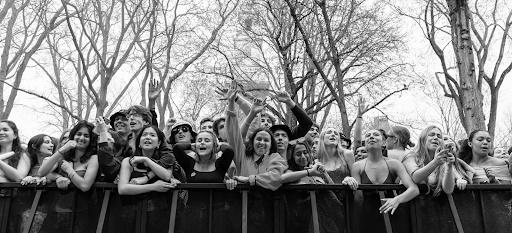

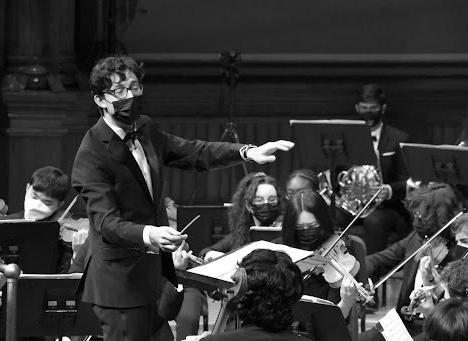


THE HARVARD CRIMSON COMMENCEMENT 2024 24 PAGE DESIGN BY JOEY HUANG — CRIMSON PHOTOGRAPHER
For Yardfest in April 2023, students flocked to Tercentenary Theatre to support student group performances and see the headliner Jeremih. JOEY HUANG — CRIMSON PHOTOGRAPHER
The Harvard Graduate Student Union-United Automobile Workers staged a 3-day strike in Fall 2021. TRUONG L. NGUYEN — CRIMSON PHOTOGRAPHER
Students gather atop the Science Center to view the partial solar eclipse in 2024. FRANK S. ZHOU — CRIMSON PHOTOGRAPHER
After the events of October 7th, students and affiliates held many events on campus to commemorate the lives lost in the Israel-Hamas war. JULIAN J. GIORDANO, FRANK S. ZHOU — CRIMSON PHOTOGRAPHERS
Students rallied on campus in June 2023 after SCOTUS struck down affirmative action. EKANSH V. TAMBE — CRIMSON PHOTOGRAPHER
In 2020, classes began with a largely empty campus. A year of online instruction and de-densified housing ensued. AMY Y. LI — CRIMSON PHOTOGRAPHER
The class of 2024 convenes on the steps of Widener library for a class photo. Students returned in Fall 2021 to a fully in-person campus. ZADOC I. N. GEE — CRIMSON PHOTOGRAPHER
The Harvard-Yale football game returned to Yale Stadium in New Haven. In a dramatic last-minute comeback, The Crimson defeated the Bulldogs 34-31. ANGELA DELA CRUZ — CRIMSON PHOTOGRAPHER
Remy the Cat became a beloved campus figure after the pandemic. BEN Y. CAMMARATA — CRIMSON PHOTOGRAPHER
Despite masking mandates in spring 2022, student groups like the Harvard Radcliffe Orchestra brightened campus. ADDISON Y. LIU — CRIMSON PHOTOGRAPHER



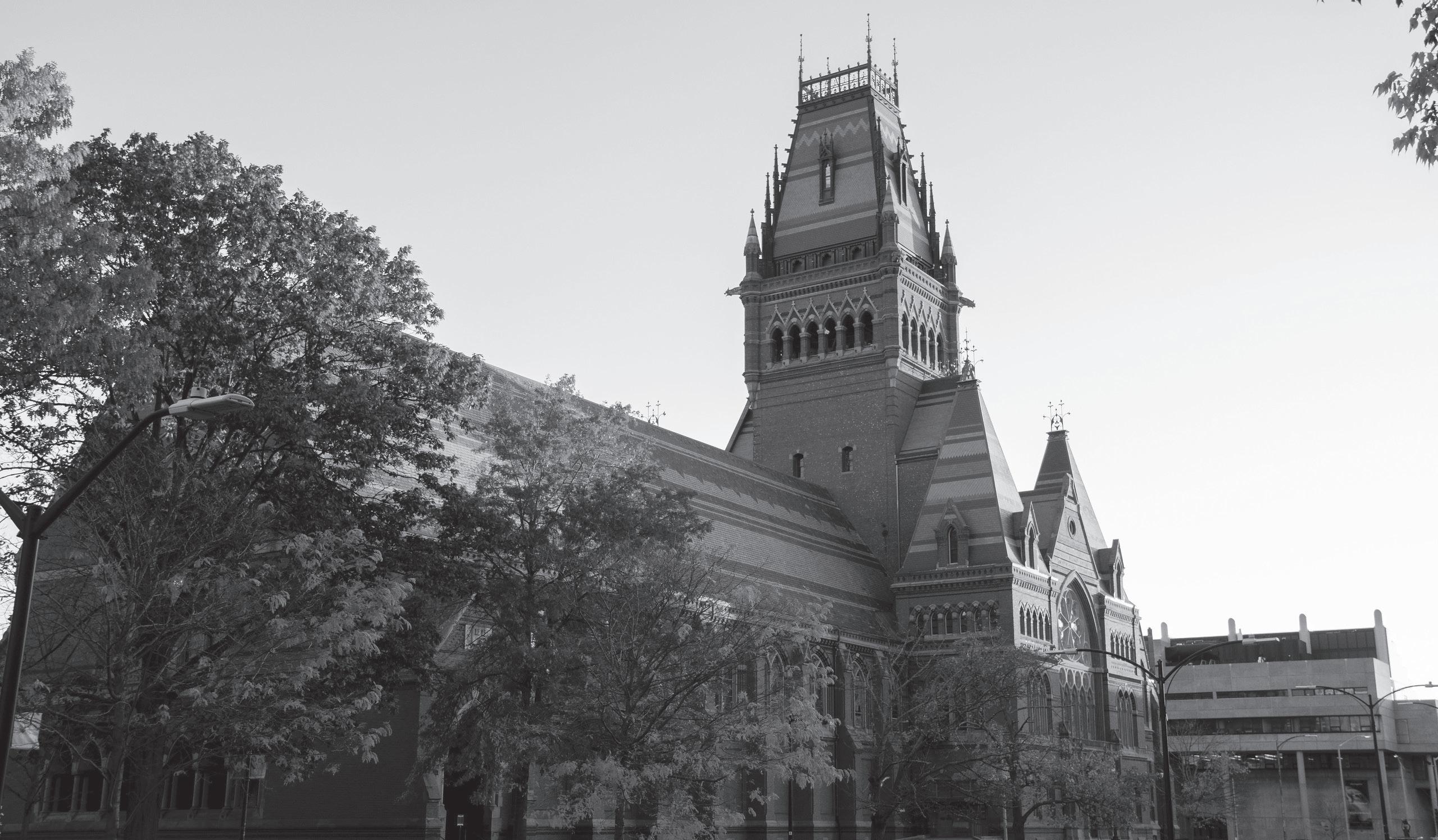
Wedding Bells
Hear from the couples in the Class of 2024 who are married or engaged to be married soon.
Sofiya O. Lysenko ’24 and Felix D. Perez Diener ’23
By IO Y. GILMAN CRIMSON STAFF WRITER
When Sofiya and Felix’s Zoom turns on, they are sitting in Felix’s Las Vegas apartment wearing matching shirts that say “Tunnels Mars” on them.
Felix works at the Boring Company, a tunnel construction company owned by Elon Musk, and each Friday, everyone wears those shirts. “The joke is that someday we’ll have tunnels on Mars,” Felix says.
The astronomical shirts are appropriate, though, because, as Felix and Sofiya explain, they had their first real conversation “under the stars” at a retreat for the Harvard Undergraduate Christian Fellowship in August of 2022.
From that conversation, the two clicked, and the following semester, they grew even closer while psetting together in Computer Science 120. Every week, Sofiya says, “we would make memes together about the class materials,” posting them on the class forum.
“Through that, I think, we started becoming better friends. I think I realized we had a similar sense of humor,” she adds. “We vibe together well.”
That October, Felix called a friend of his and mentioned Sofiya. “It sounds like you really like this girl,” he remembers his friend telling him. “I was like, ‘What do you mean?’ But then I thought about it and I was like, I guess the idea of taking Sofi-
ya on a date actually sounded pretty exciting,” Felix says. So he asked her out.
A little over a year later, now graduated and living in Las Vegas, Felix would recreate their first date — a walk around Back Bay — for the proposal.
That morning, Felix had flown into Cambridge to surprise Sofiya, knocking on her door at the time they usually call each morning. They then took an Uber to Boston where Felix, at first, “fake” proposed. After gesturing for her to look away, he knelt down — but just to tie his shoe. “I didn’t know he was going to propose,” Sofiya says. “I also thought he was just messing with me.”
But then, Felix walked her to the Northeastern computer science building, which they had visited on their first date. There, with a photographer waiting, Felix proposed for real.
They will get married on June 1, 2024, in Felix’s hometown of Goshen, Indiana at the church he grew up going to.
They are excited for married life. “I’m looking forward to our evenings together,” Felix says, adding that he’s excited for “the daily rhythms of life.” Sofiya says she’s looking forward to building a home and family with Felix and having their “own little space together.”
In the meantime, they will continue to enjoy each other’s company. When apart, they like to spend time on the Discord server they use to talk to each other and play “Hand-and-brain” chess on Chess. com.
When together in person, they play sports, particularly pickleball and acroyoga — a combination of acrobatics and yoga where partners contort their bodies into intricate poses.
I didn’t know he was going to propose. I also thought he was just messing with me.
Sofiya
At the core of their relationship is a strong friendship. “We just get along well,” Sofiya says, pointing out that they were good friends for several months before they began dating. “It just feels like we’re still friends,” she adds.
With their shared faith as another foundation for their relationship, Sofiya and Felix are grateful to have each other as they navigate young adulthood.
“We’re in it for life and I’m excited to start that,” Sofiya says.
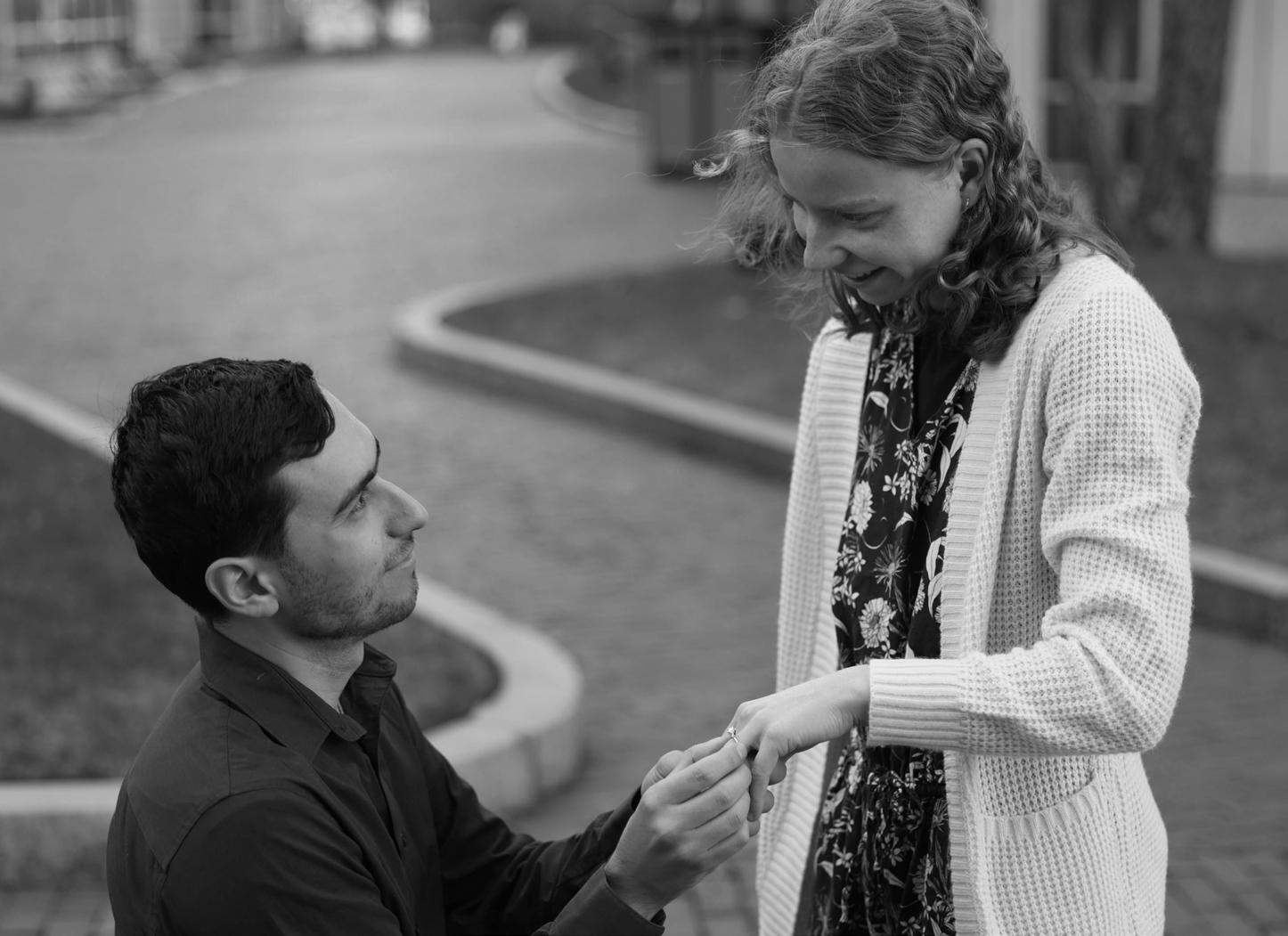
THE HARVARD CRIMSON COMMENCEMENT 2024
26 PAGE DESIGN BY ISABEL W. BROWN — CRIMSON DESIGNER
PHOTO COURTESY OF SOFIYA O. LYSENKO
O. Lysenko ‘24
Benjamin F. Allen ’24 and Alexandra N. Pipkin ’23
By AMBER H. LEVIS CRIMSON STAFF WRITER
When Sofiya and Felix’s Zoom turns on, they are sitting in Felix’s Las Vegas apartment wearing matching shirts that say “Tunnels Mars” on them.
Felix works at the Boring Company, a tunnel construction company owned by Elon Musk, and each Friday, everyone wears those shirts. “The joke is that someday we’ll have tunnels on Mars,” Felix says.
The astronomical shirts are appropriate, though, because, as Felix and Sofiya explain, they had their first real conversation “under the stars” at a retreat for Harvard Undergraduate Christian Fellowship in August of 2022.
From that conversation, the two clicked, and the following semester, they grew even closer while psetting together in CS 120. Ev-
ery week, Sofiya says, “we would make memes together about the class materials,” posting them on the class forum.
“Through that, I think, we started becoming better friends. I think I realized we had a similar sense of humor, we vibe together well,” she adds.
That October, Felix called a friend of his and mentioned Sofiya. “It sounds like you really like this girl,” he remembers his friend telling him. “I was like, ‘What do you mean?’ But then I thought about it and I was like, I guess the idea of taking Sofiya on a date actually sounded pretty exciting,” Felix says. So he asked her out.
A little over a year later, now graduated and living in Las Vegas, Felix would recreate their first date — a walk around Back Bay — for the proposal.
That morning, Felix had flown into Cambridge to surprise Sofiya, knocking on her door at the time they usually call
each morning. They then took an Uber to Boston where Felix, at first, “fake” proposed. After gesturing for her to look away, he knelt down — but just to tie his shoe. “I didn’t know he was going to propose,” Sofiya says. “I also thought he was just messing with me.”
But then, Felix walked her to the Northeastern Computer Science building, which they had visited on their first date. There, with a photographer waiting, Felix proposed for real.
They will get married on June 1, 2024, in Felix’s hometown of Goshen, Indiana at the church he grew up going to.
They are excited for married life. “I’m looking forward to our evenings together,” Felix says, adding that he’s excited for “the daily rhythms of life.” Sofiya says she’s looking forward to building a home and family with Felix and having their “own little space together.”
In the meantime, they will continue to enjoy each other’s company. When apart, they like to play games on the Discord server they use to talk to each other and play “Hand-and-brain” chess on Chess.com. When together in person, they play sports, particularly pickleball and acroyoga — a combination of acrobatics and yoga where partners contort their bodies into intricate poses.
At the core of their relationship is a strong friendship. “We just get along well,” Sofiya says, pointing out that they were good friends for several months before they began dating. “It just feels like we’re still friends,” she adds.
With their shared faith as another foundation for their relationship, Sofiya and Felix are grateful to have each other as they navigate young adulthood. “We’re in it for life and I’m excited to start that,” Sofiya says.
Joanna H. Wang (Bai) ’24 and Thomas S. Wang
By IO Y. GILMAN
CRIMSON STAFF WRITER
Joanna and Thomas first learned about each other because a mutual friend thought they looked alike.
The two were members of their high schools’ rival speech teams, and “it sort of became this meme between our two teams that we looked the same,” Joanna says.
After bumping into each other at a graduation party the summer before their senior year of high school, Joanna and Thomas grew close, and partway through the school year, they began dating. In 2019, Joanna and Thomas graduated and the long-distance portion of their relationship began.
While Joanna took a gap year, Thomas became a missionary for the Church of Latter-Day Saints, first in American Samoa and then in New Jersey after the Covid-19 pandemic started.
To block out distractions — during what Joanna described as a “really sacred time for a lot of young adults” — missionaries are only allowed to call home and answer emails once a week. For two years, Joanna and Thomas communicated primarily through weekly emails.
After coming back from his mission, Thomas started at Brigham Young Univer-
sity in the fall of 2021. Now, Thomas and Joanna call nightly, visit each other about once a month, and spend school breaks together.
Joanna and Thomas enjoy watching movies and shows together. “He really likes Lord of the Rings. He thinks they’re the most perfect movies ever made,” Joanna says. “I personally am a little bit more of a rom-com girlie.” They also watch a lot of Los Angeles Lakers games. “I’ve sort of converted him to be an L.A. Lakers fan,” Joanna says.
When Joanna visits Thomas in Utah they also like going to Nickel City, an arcade where every game costs a nickel.
Joanna and Thomas got engaged in December 2022 in their hometown of Omaha, Nebraska. After picking up Joanna from her flight, Thomas suggested they visit the church’s Winter Quarters Nebraska Temple.
As they walked around the temple, Joanna realized that he was going to propose. At that point, she says, “I completely blacked out.”
“I’m assuming that he asked me to marry him. And I’m also assuming that I said yes,” Joanna says. “I’m really just going off of inference.”
Eight months later, on Aug. 5, they were married at the Bohemian Gardens in downtown Omaha, before going to the temple where they got engaged to do their temple
sealing, a church ritual meant to preserve the couple’s relationship beyond death.
Joanna looks forward to moving to Utah
after graduation. “We won’t be long-distance married anymore, which I think will be a great chapter,” she says.
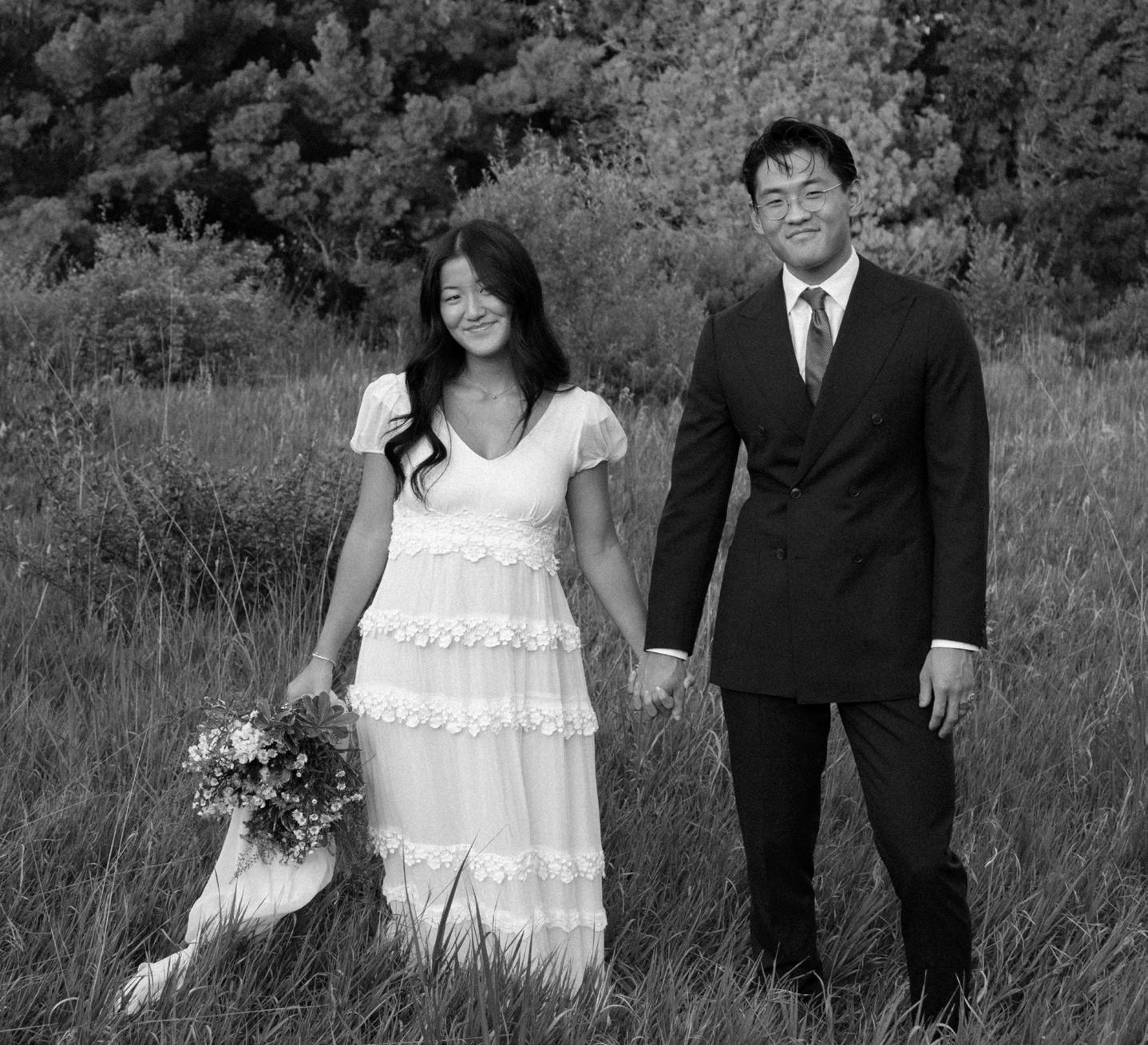
THE HARVARD CRIMSON COMMENCEMENT 2024
27
PHOTO COURTESY OF JOANNA H. WANG (BAI)
Emma K. Greaves ’24 and Nolan D. Jacobs
By IO Y. GILMAN CRIMSON STAFF WRITER
For Emma and Nolan it’s important to “live boldly,” Nolan says — hence their upcoming wedding.
“I always give this advice to couples that they shouldn’t be afraid, that fortune favors the bold, and they should just go for it when they feel like it. Because what’s the worst that can happen?” Emma adds.
Their relationship even started with a bold move — going out for two days on a camping and canoeing trip at Sebago Lake in Maine as their first date in the summer of 2022. They had met two weeks before through their mutual friend Nate A. DeLucca ’24, who also grew up in Nolan’s hometown of Houlton, Maine.
“We decided to do the camping trip, because no matter what, we were gonna find out by the end of that if we were going to work,” Emma says. By the end of the camping trip, they were committed.
With that, the long-distance portion of their relationship started. Around once a
month, Nolan will come to Cambridge or Emma will go to Philadelphia, where Nolan attends the University of Pennsylvania. This semester, though, they’ve had a little more time so it’s been closer to twice a month.
Cheap Frontier tickets also help: “There’s an itinerary from Boston to Philly that’s 40 bucks round trip,” Emma explains. “We’ve been kind of spoiled the past six months,” Nolan adds.
Whether in person or long-distance, Nolan and Emma like to stay active. They go on runs and have completed a Murph — a workout where you complete 2 miles of running, 100 pull-ups, 200 push-ups, and 300 squats while wearing a 20-pound vest or body armor. When apart, they give each other kudos on Strava, a social app for runners and bikers. Emma and Nolan got engaged in February of this year at Cira Green, a rooftop garden in Philadelphia. Nolan says that before the proposal, one of his married friends told him that something always goes wrong the day of the proposal. “I was like, ‘No, it’s not gonna happen.’ But when we got there, the elevator was
broken so we had to walk up 11 flights of stairs to get to the top,” Nolan says.
In the end, the broken elevator in some ways ended up being an advantage — the rooftop was almost empty, except for “this pair of amateur photographers, which sounds planted, but it was a really happy coincidence,” Emma says.
Since then, the couple has been caught up in wedding planning. “My friends have been joking with me because I didn’t write a thesis that this is my thesis,” Emma says with a laugh.
On May 26, 2024, Emma and Nolan will get married in Groton, Massachusetts, in a wedding they describe as “elegant meets rustic charm.” Emma and Nolan are excited to spend a special night with their friends and family before they move across the country to San Diego, where Nolan will be commissioned as a Navy officer and Emma will work in biotech. They are excited to build a shared life in San Diego.
“I think distance has been great, and we’ve definitely grown together as a couple but also
as individuals because of the long distance,” Emma says. “But I think it’ll be really exciting when we’re making our life out in San Diego to be doing that as a couple.”

Soren E. Choi ’24 and Isabella M. Meyer ’24
By AMBER H. LEVIS CRIMSON STAFF WRITER
When Soren E. Choi ’24 and Isabella M. Meyer ’24 met, Isabella thought he secretly hated her. “It was kind of like an enemies to friends to lovers arc,” she says.
They were in the Harvard University Choir together and Soren’s frankness initially came off as confrontational to her — “I just have a lot of strong opinions,” he laughs — but it eventually became something she appreciates about him. “I understand the benefits of someone
who is a mirror to me and will always give me the truth, even when it hurts,” she says.
During the winter break of their junior year, they discovered they had feelings for each other. The more they talked, the more they realized they also shared the same goals.
“Kind of an awkward set of realizations over the phone when you’re in your childhood bedroom,” Isabella chuckles. After all, for them, dating is serious business — a sort of “trial marriage” as Soren calls it. “I’ve always been very upfront with the fact that I expected any relationship I enter into to be with the intention of marriage sometime down the line,”

he says. They’re both observant Christians and have traditional family values. “Yeah, we want children. We want to be married at a young age,” Isabella says.
They started dating when they returned to campus in January last year. That summer, Soren left for a month-long Reserve Officers’ Training Corps camp. For two weeks, he didn’t have access to the internet or his phone. Unbeknownst to him, Isabella and his mother were scheming. By the time he returned home, the wedding venue had been booked. (“You have to book a year out!” she protests when Soren teases her about this.)
While it may seem hasty to book a venue before the proposal, they had been talking about marriage from the start — Isabella had even explained her wedding ring preferences. The only question left for them was when.
It was Oct. 12, Isabella’s birthday. They had just had dinner, and despite the biting New England cold, they went on an evening walk on the riverbank of the Charles. He handed her a gift bag. As a student of Victorian literature, she was delighted to find a book — a Penguin clothbound copy of Pride and Prejudice. It was a marriage plot. She opened it, and inside was a carved rectangular hole and a ring.
They’re getting married in June at the Oxford Divinity School — a filming location for “Harry Potter and the Sorcerer’s Stone.” It was the next best choice once they found out that Westminster Abbey only holds weddings for clergy members and royals.
As musicians, they enjoy going to classical concerts together, particularly those held by the Handel and Haydn Society and the local opera company. “We’re really old souls. We’re like 75-year-olds put into 21-year-old and 22-year-old bodies,” Isabella says.
For them, marriage is all about partnership. “Marriage comes before financial stability or career success,” Soren says. Going forward, any career opportunities they accept will be joint decisions. “You’re building a life together rather than trying to bridge to separate lives,” he says.
But in another sense, they find that engagement hasn’t changed their lives significantly. “While you are much closer and privy to a lot more, that doesn’t mean that your relationship with that person just magically changes because your Facebook status changes,” Soren says.
But there is one thing they’re looking forward to once they get married: getting a dog.
THE HARVARD CRIMSON COMMENCEMENT 2024
28 PAGE DESIGN BY ISABEL
— CRIMSON DESIGNER
W. BROWN
PHOTO COURTESY OF EMMA K. GREAVES
PHOTO COURTESY OF JACELYN BRYANT
Hanna M. Johnson ’24 and Jared C. Zimmerman
By IO Y. GILMAN CRIMSON STAFF WRITER
“The day I saw her, I just imagined, envisioned her in a wedding dress and everything and I instantly knew I wanted to marry that person,” Jared says, explaining that they met while working together at a fast food restaurant as high schoolers.
Despite Jared’s certainty, the couple didn’t start dating until more than four years later. “It took me quite a bit longer to get there. But something always did feel different about him,” Hanna says.
Over those four years, Hanna and Jared developed a close friendship. “We were both really interested in politics, which is not super common in the Midwest,” Hanna explains.
The couple hails from the Fargo-Moorhead area, though Hanna lived on the North Dakota side and Jared lived on the Minnesota side.
Their friendship ran deeper than shared interests: “He was always the first person I ran to with good news, or the first person I went to for comfort,” Hanna says.
Around two years ago, they decided to date. “I think it felt a lot scarier for me because I knew that he wanted to marry me,” Hanna says. “So I couldn’t just go on a first date with him and test the waters.”
For their first date, they took a trip to Minneapolis. A highlight of the trip was seeing the Basilica of Saint Mary, the first Catholic Basilica built in America, since Hanna was about to convert to Catholicism.
They will be wed at the Basilica on Aug. 15, 2025. They chose August 15 for the wedding because “15s are really important in our relationship” — they met on March 15 and started dating on July 15. Jared also proposed on June 15 in Washington, D.C., where Hanna was living at the time.
“We’d always wanted to involve something with politics and history,” Jar-


Ashley R. Ferreira
Once, Harvard was the college of your dreams. Now, you have earned a Harvard degree to pursue those dreams. We could not be more proud. We all love you and will be by your side always in all that you do.
Remember, no matter how impossible your dreams may seem, nothing is possible until you believe.
Love, Ma, Grandma, Breanna, and Michael
ed says, so he planned a scavenger hunt around D.C. — a fun surprise for Hanna because she already knew he was going to propose that day.
At each place he took her, he connected the location to their relationship. For instance, when they went to the Capitol, Hanna says, “We talked about our relationship as a symbol for bipartisanship.”
Hanna is a Democrat and Jared is a Republican.
Finally, at the Lincoln Memorial, with the Washington Monument in the background, Jared proposed. Overwhelmed by the crowds a bit, they decided to walk to one of the world war memorials, where it was “quiet and beautiful.” Jared proposed again. “I said yes both times, of course,” Hanna says.
In addition to two proposals, there were two rings. One ring was designed by Hanna. But Jared still wanted to pick out a ring and surprise Hanna, so he bought her “a much less expensive one that I could
wear traveling and things like that,” Hanna says.
Hanna also bought Jared a ring with ancient Roman designs to honor his interest in the Roman Empire.
“I think it’s silly that only one partner gets to have that documentation,” Hanna says. “I’ll replace it with a wedding band next year. But until then, especially given our long engagement, we have something.”
After graduation, Hanna will join Jared in Minneapolis. While he finishes his law degree at the University of St. Thomas, Hanna will work at RISE, an advocacy group that works to pass laws supporting sexual assault survivors.
They are looking forward to all the “little things” that come along with married life — shopping, cooking, decorating an apartment, and more.
They are also excited to plan their future together and discuss building a family together.
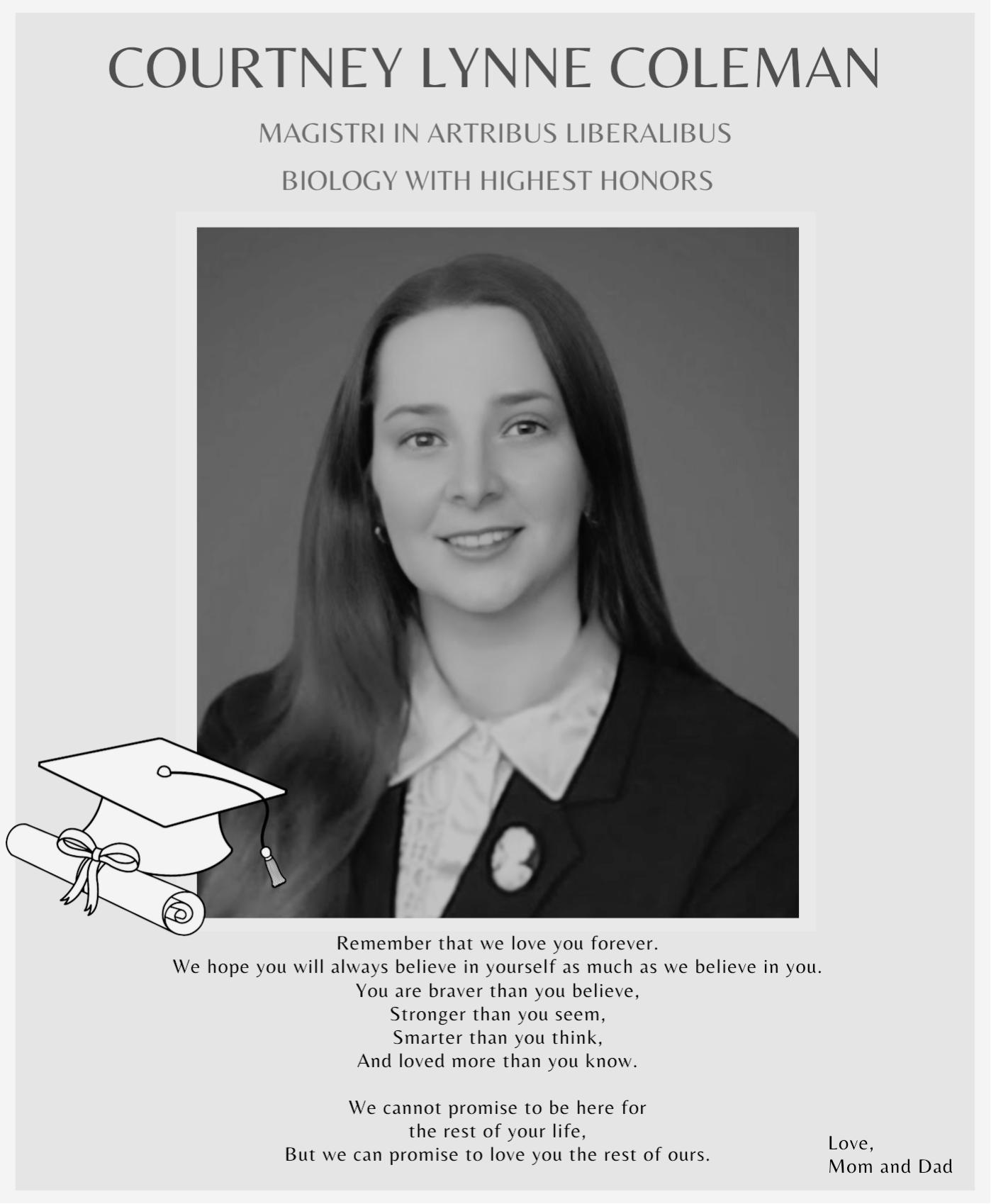
THE HARVARD CRIMSON COMMENCEMENT 2024











































 By LEAH J. TEICHHOLTZ AND MEIMEI XU CRIMSON STAFF WRITERS
By LEAH J. TEICHHOLTZ AND MEIMEI XU CRIMSON STAFF WRITERS


































